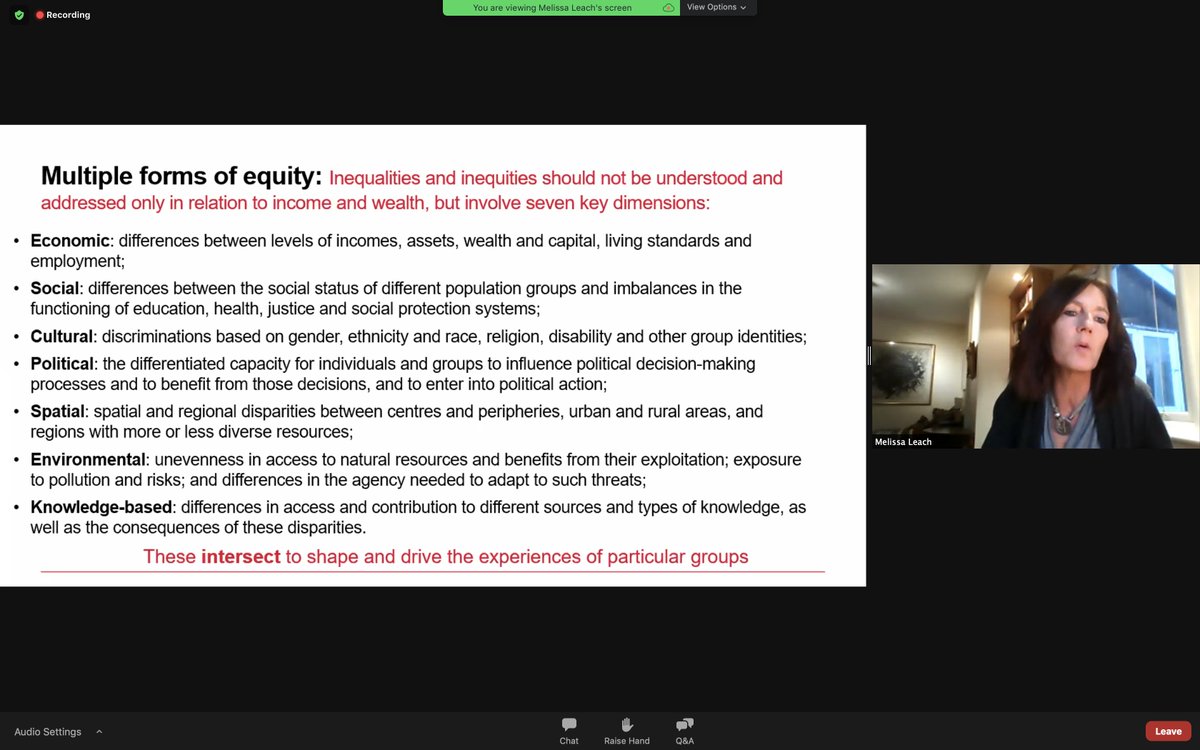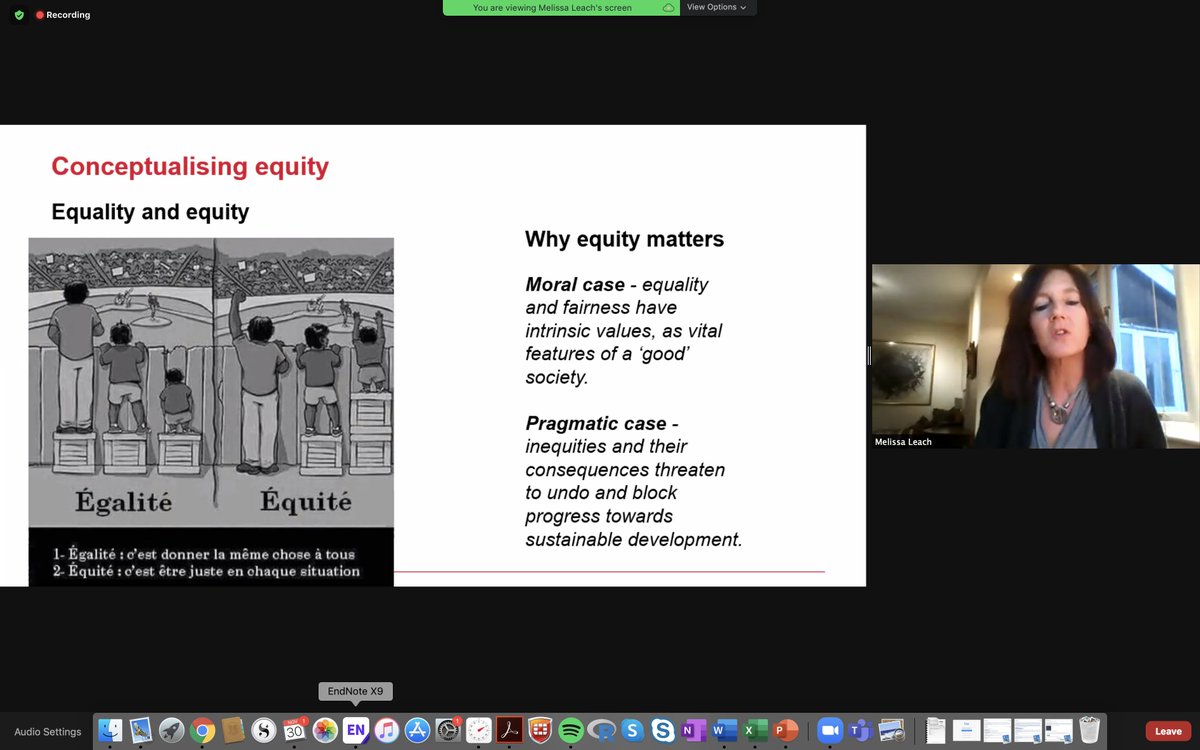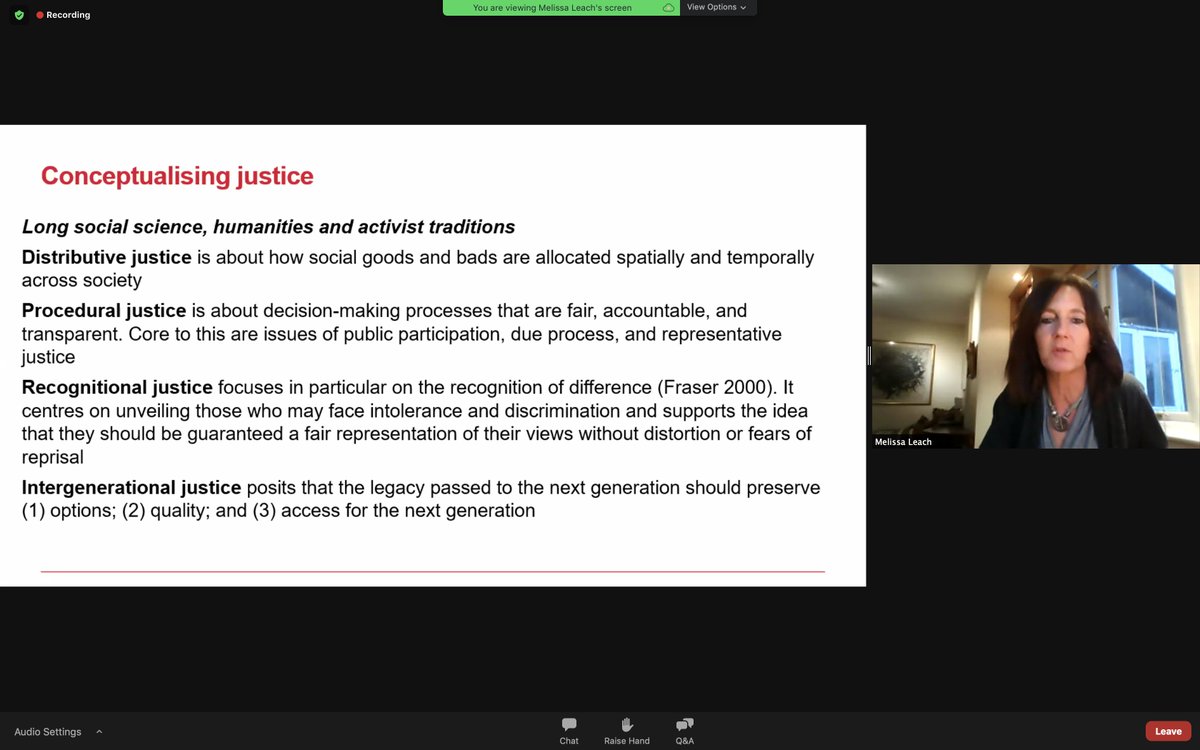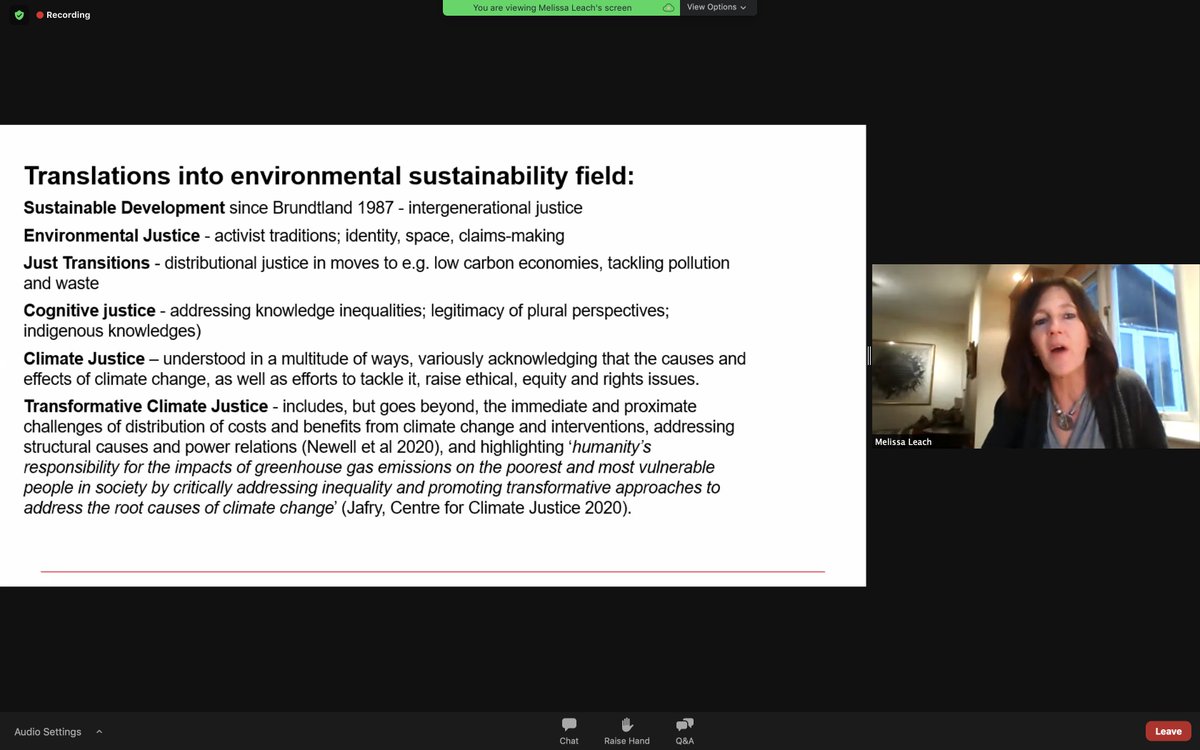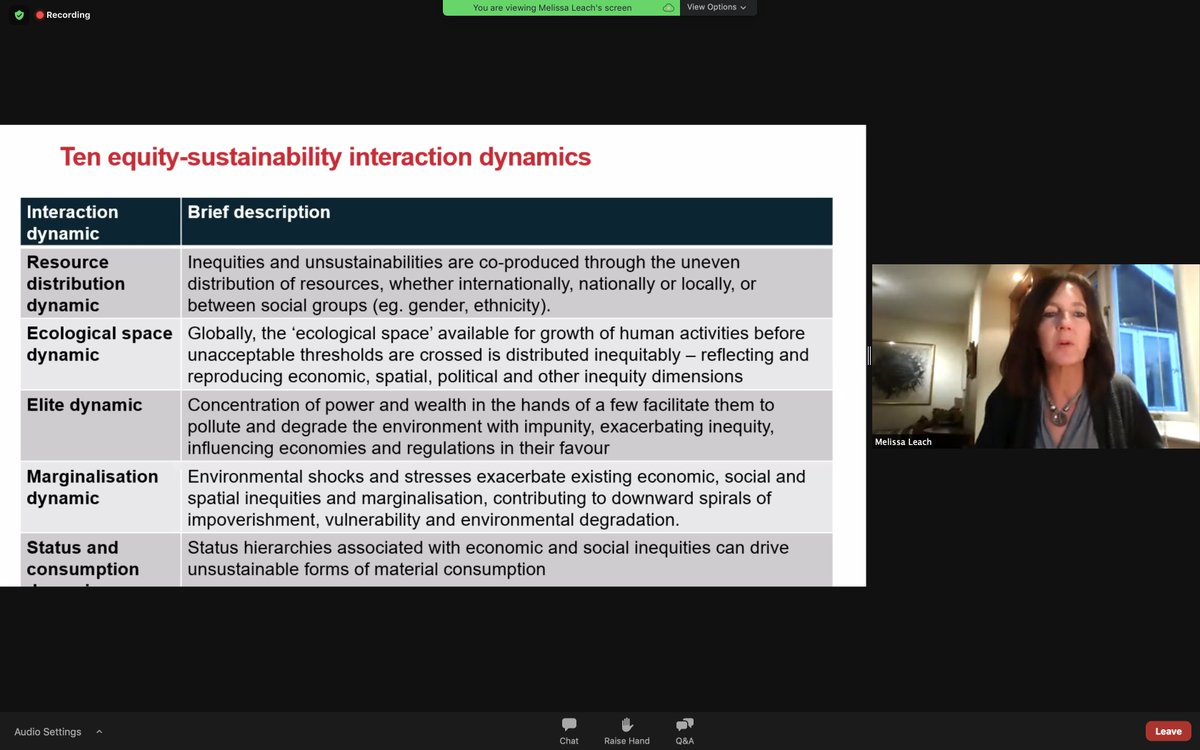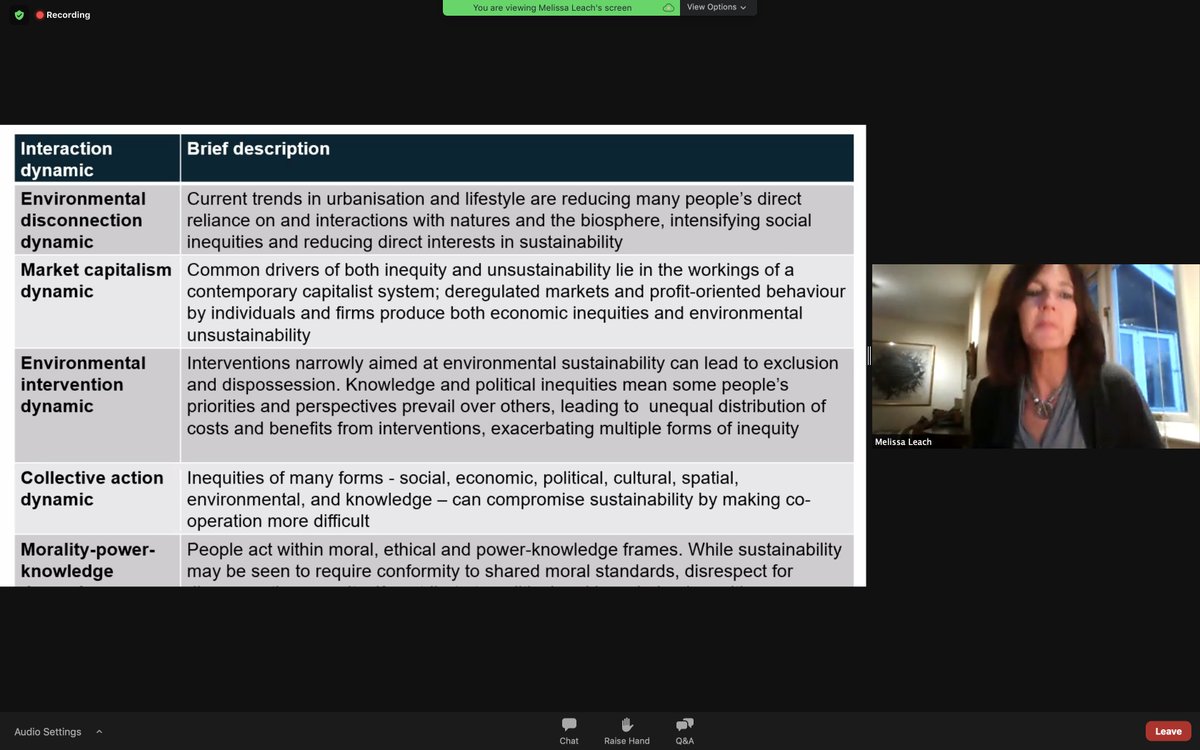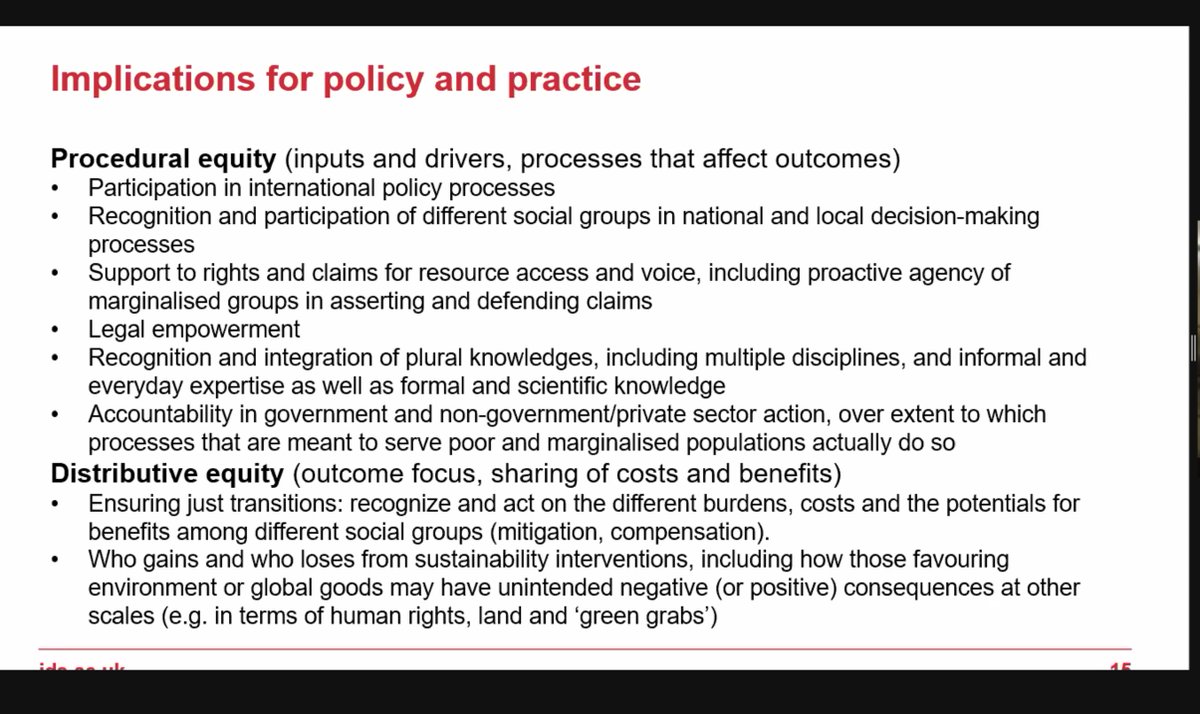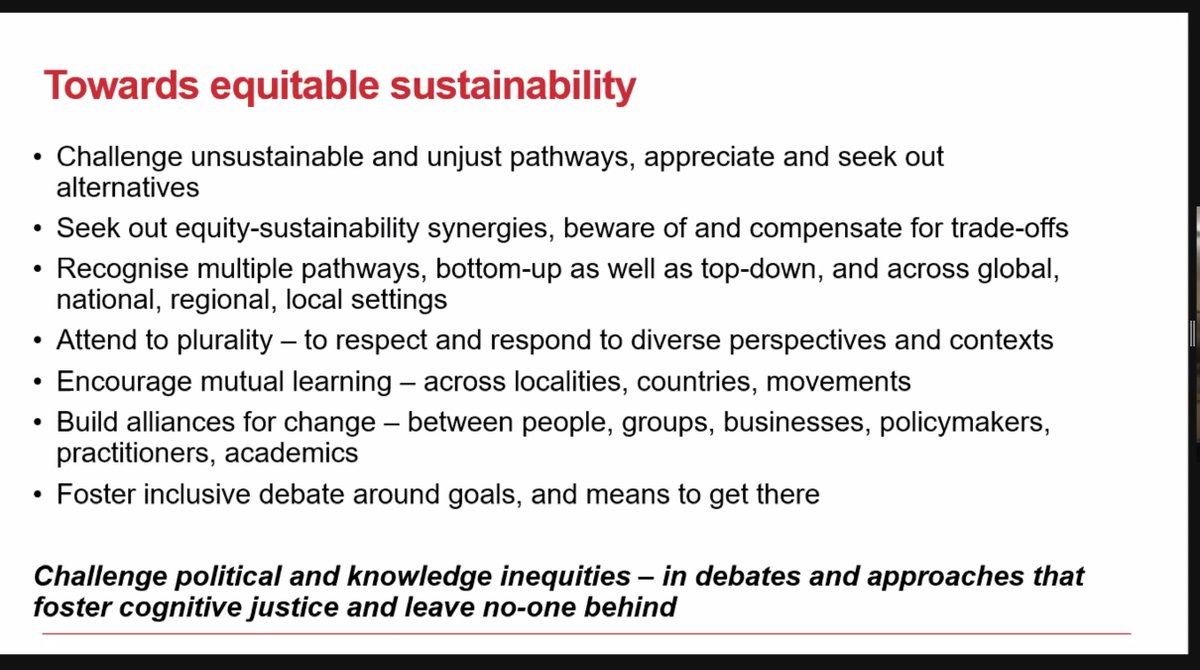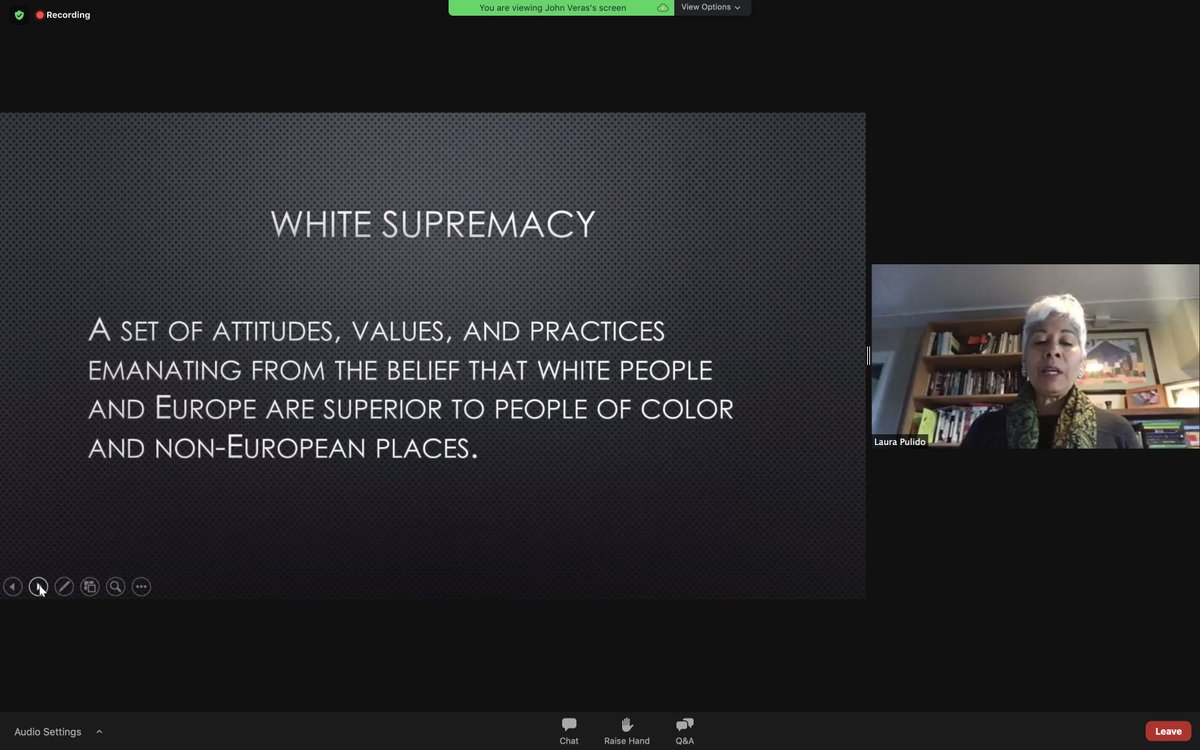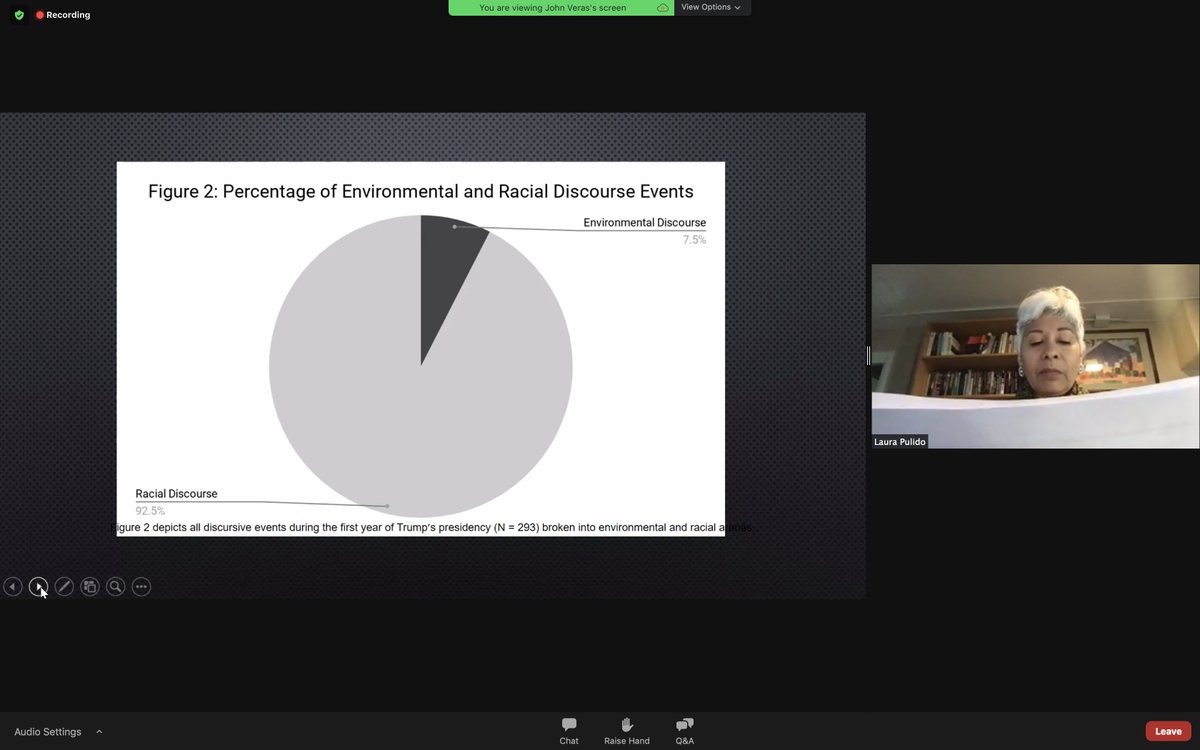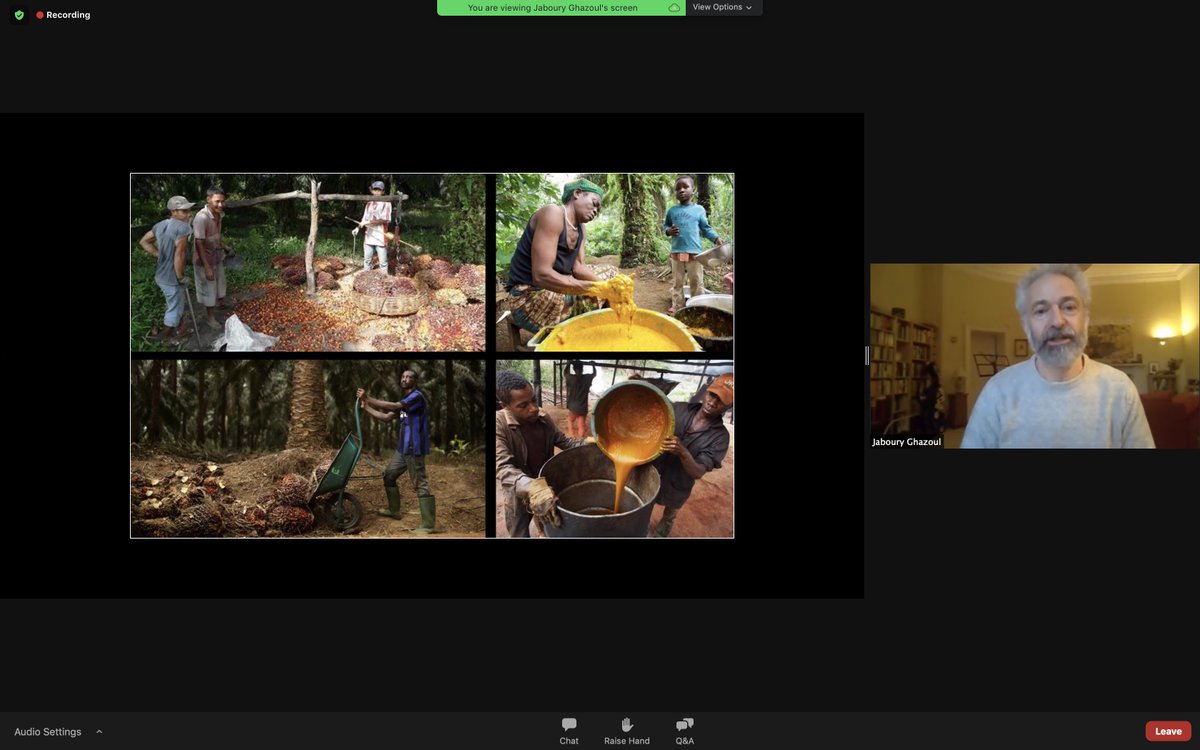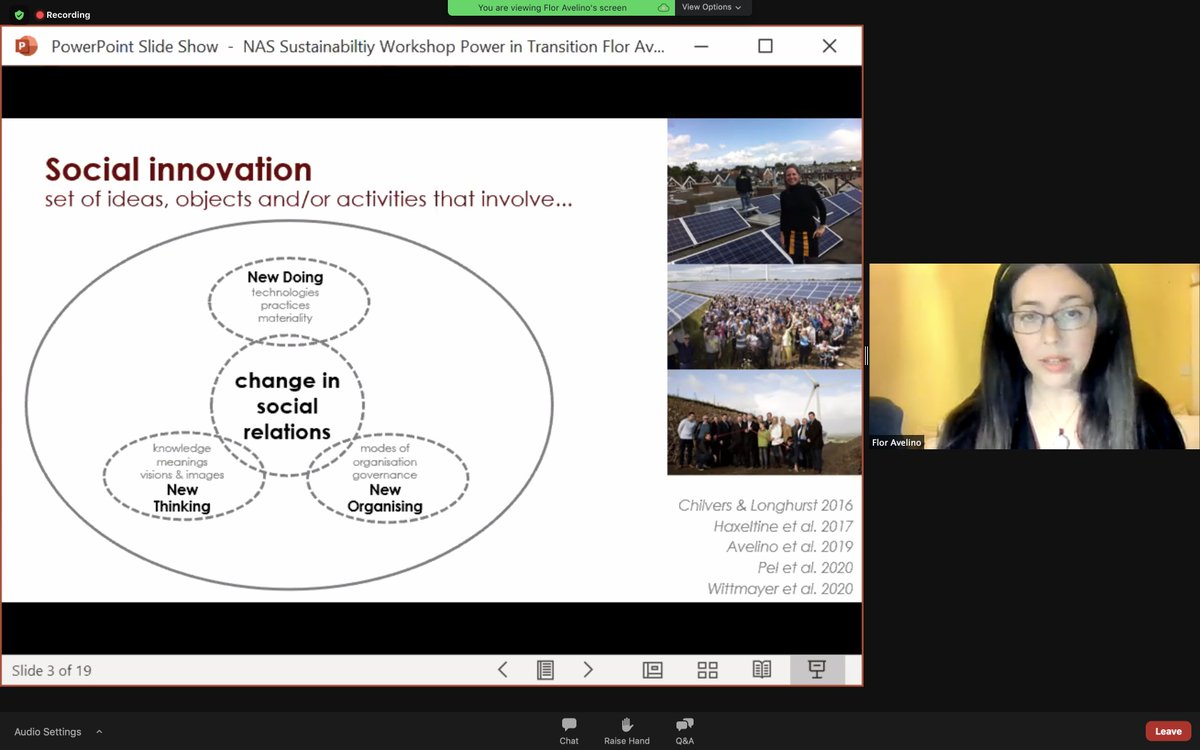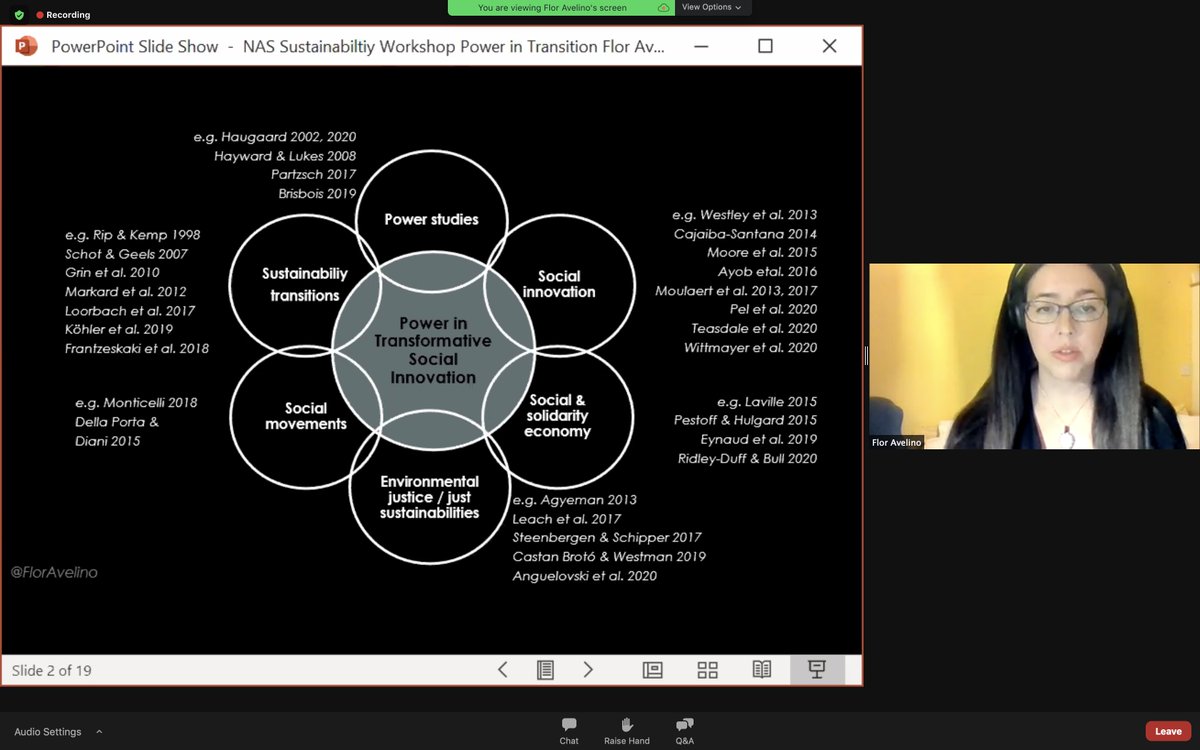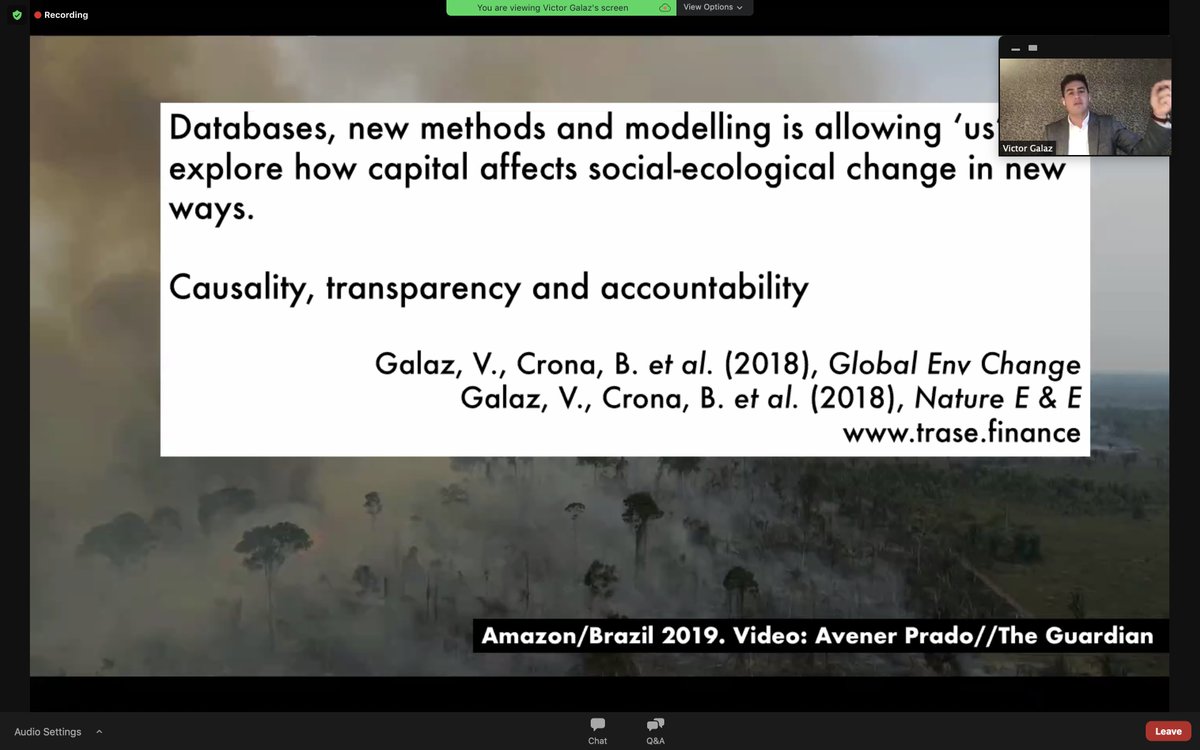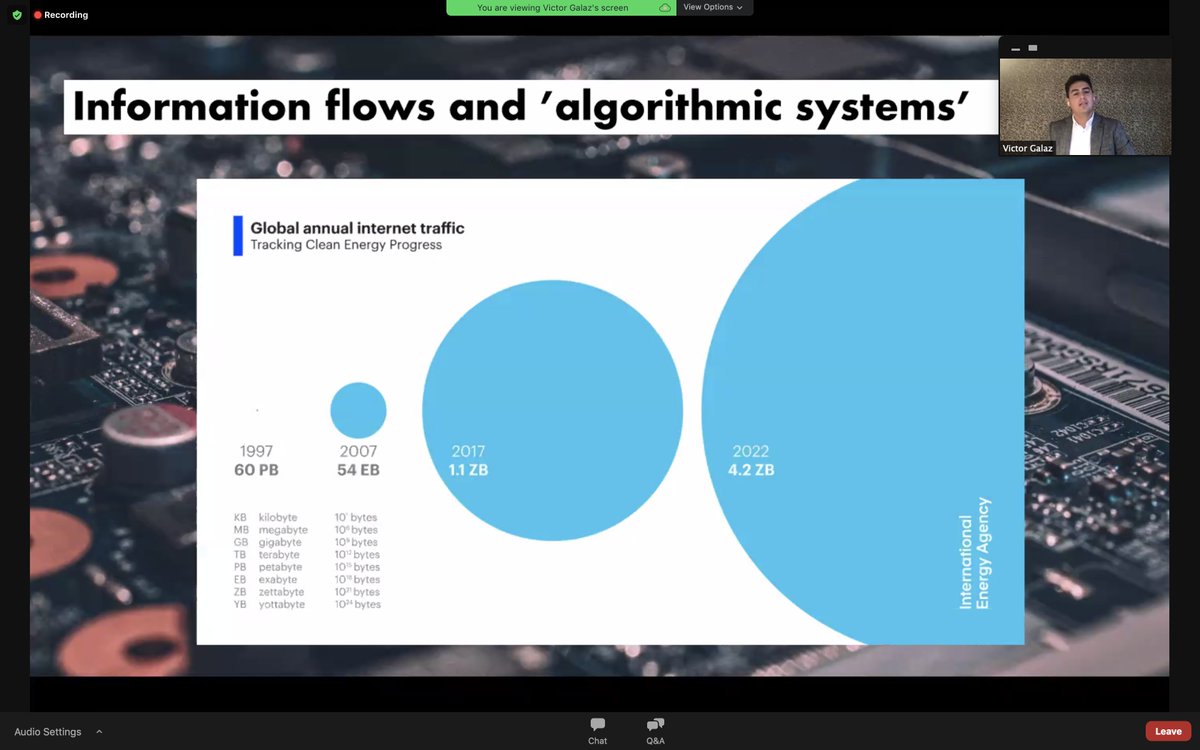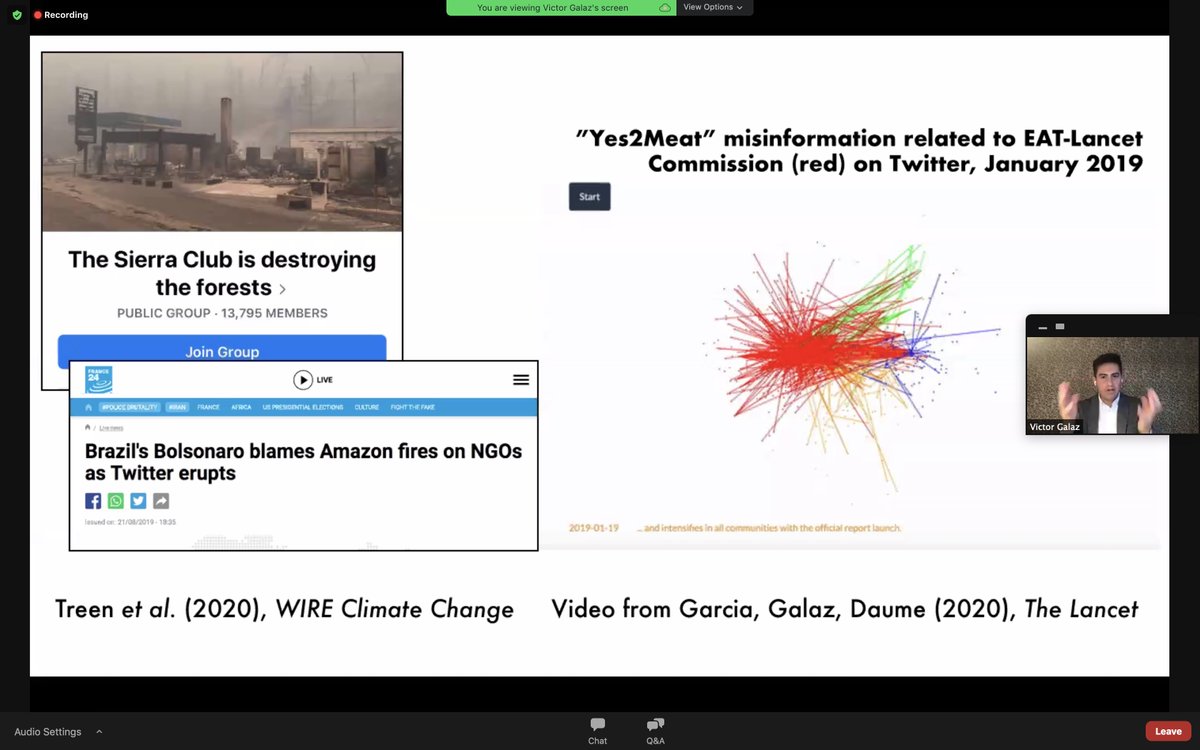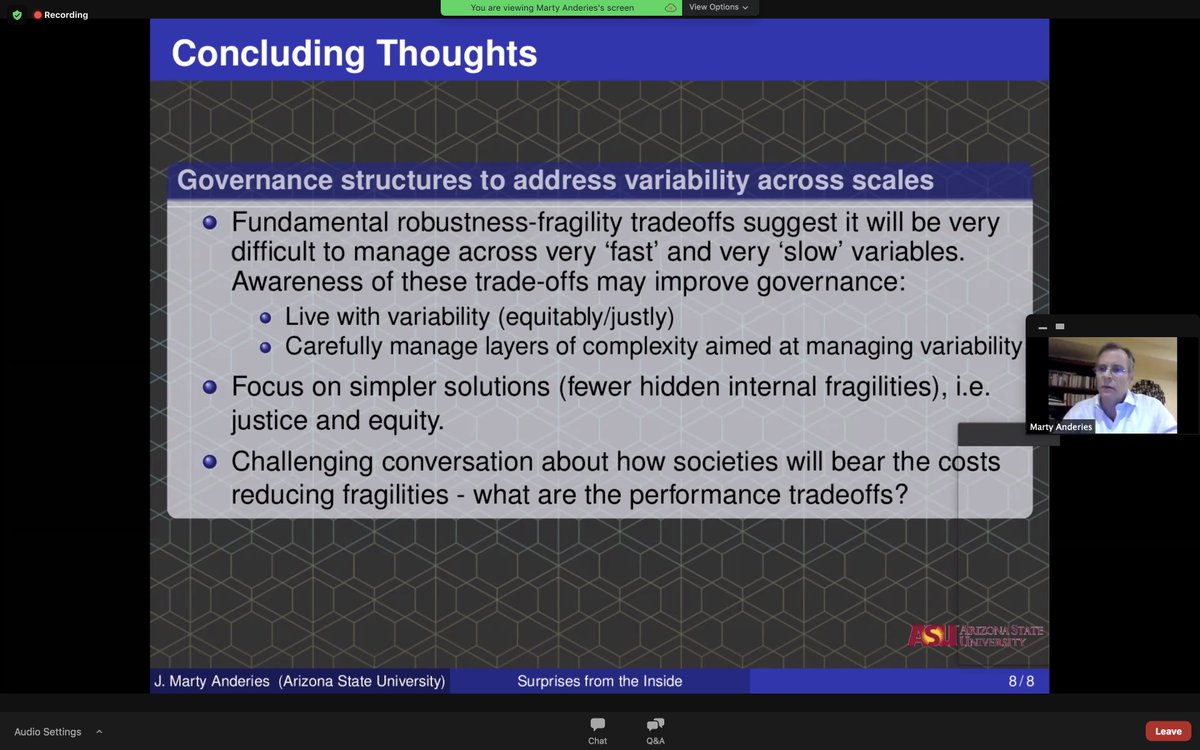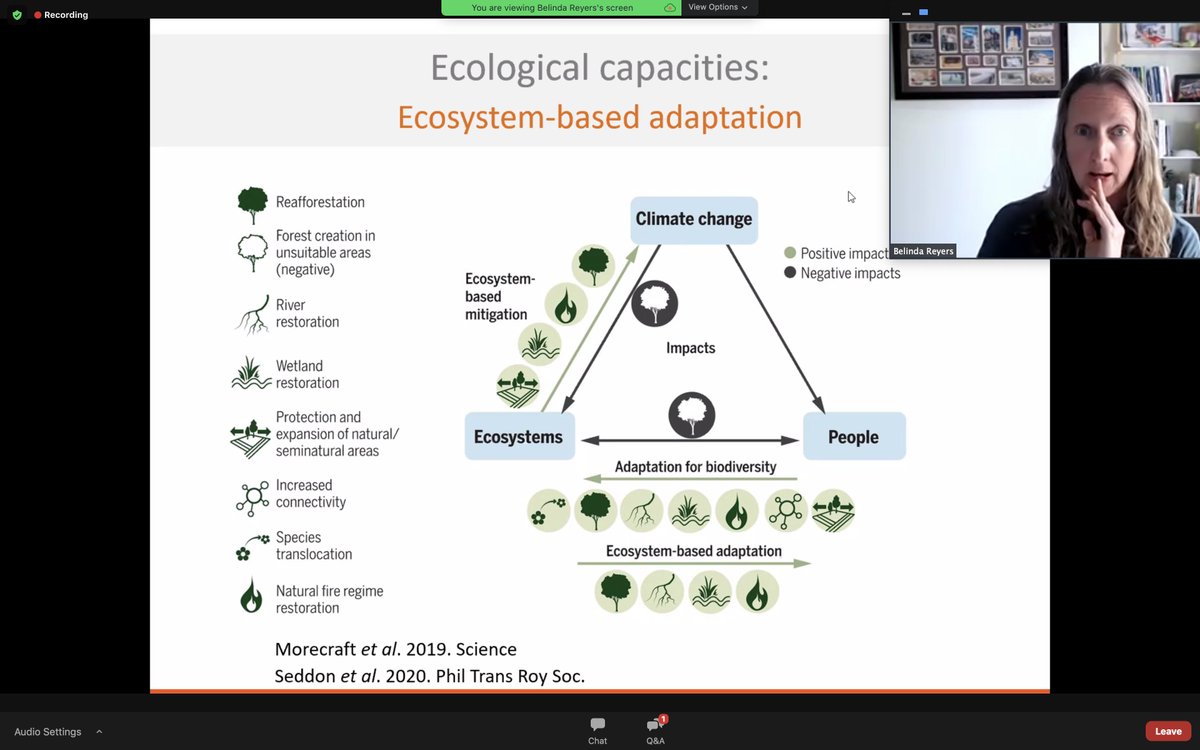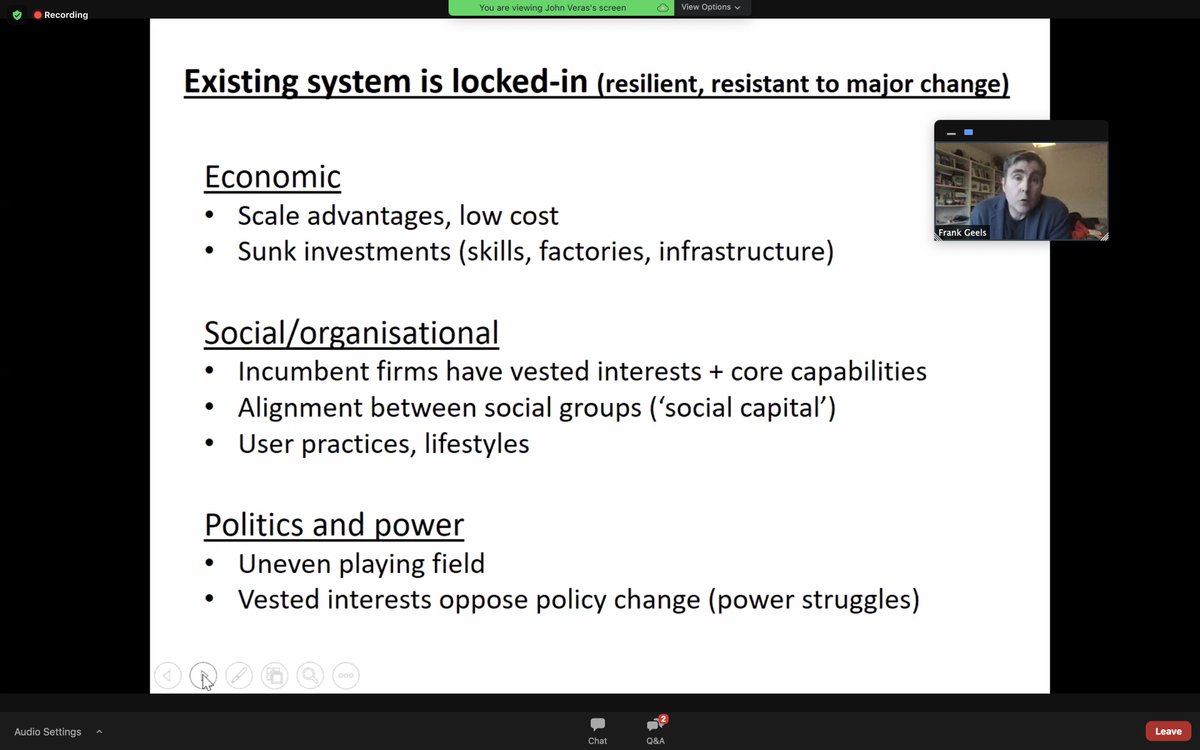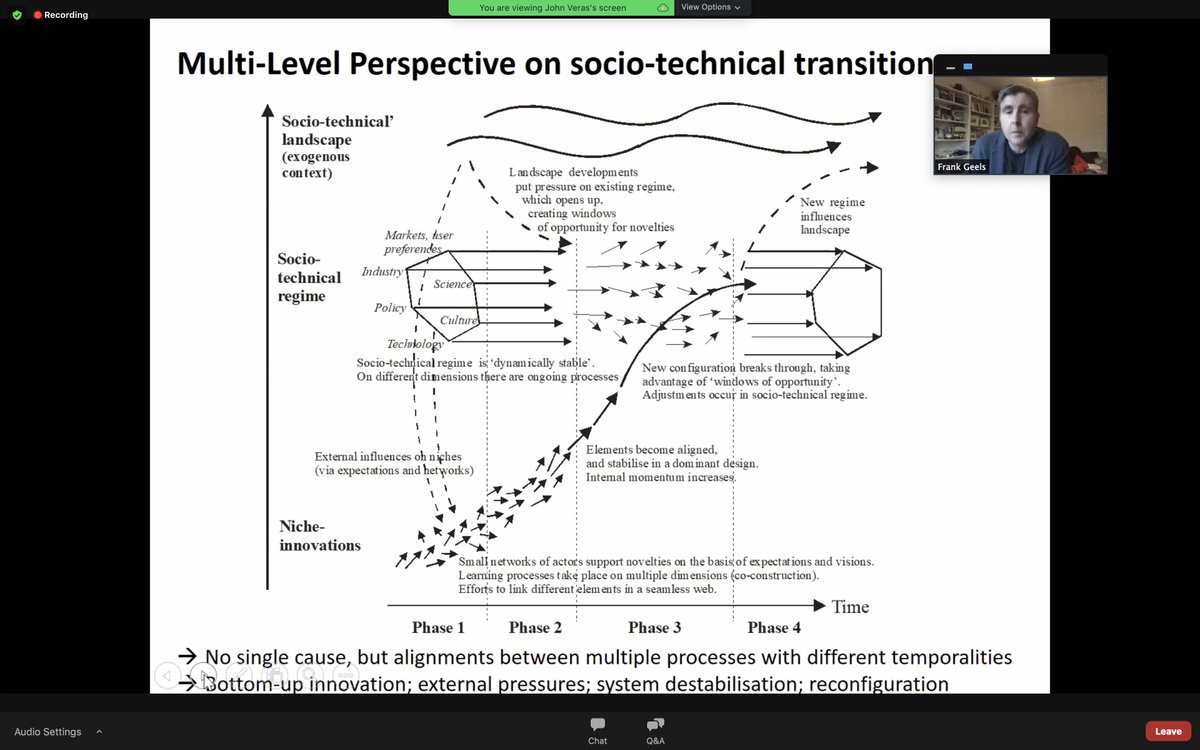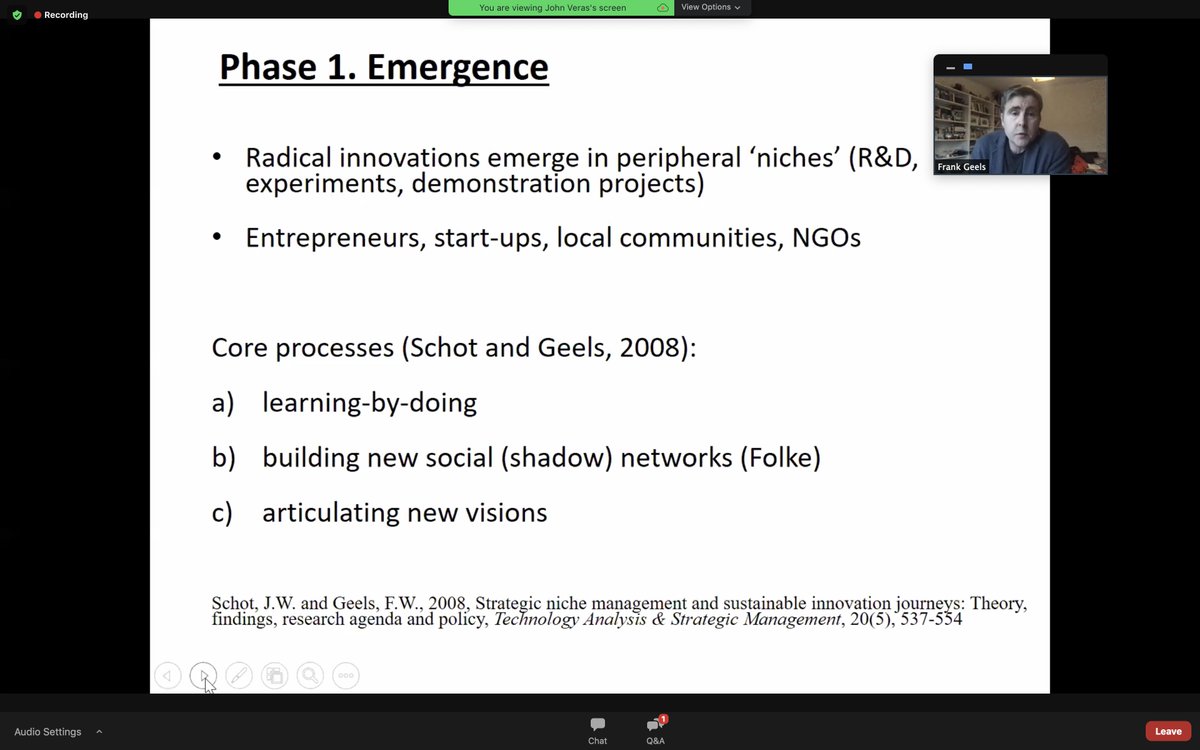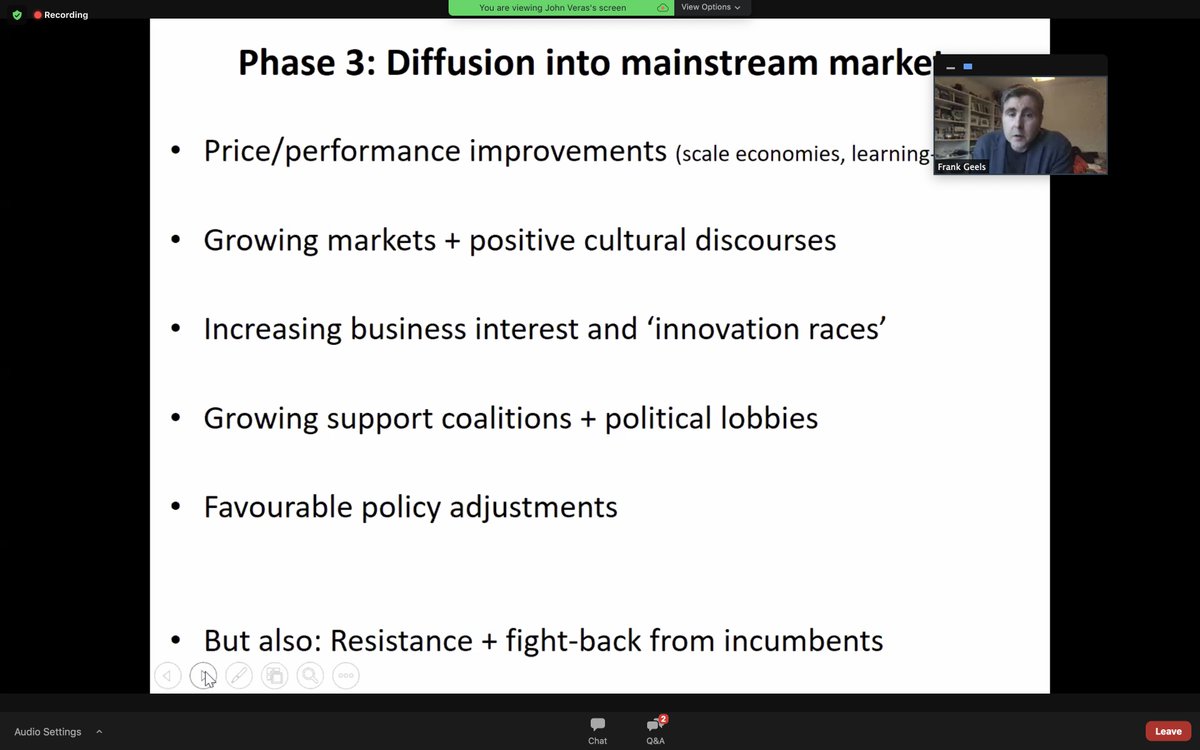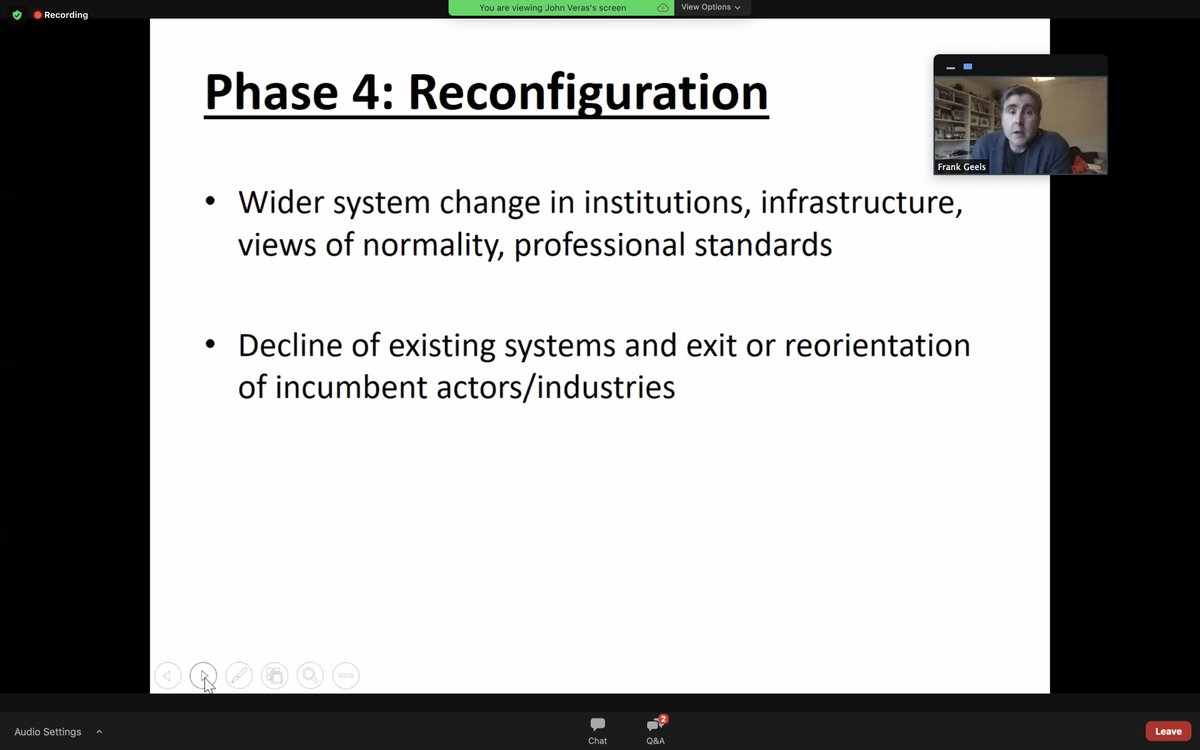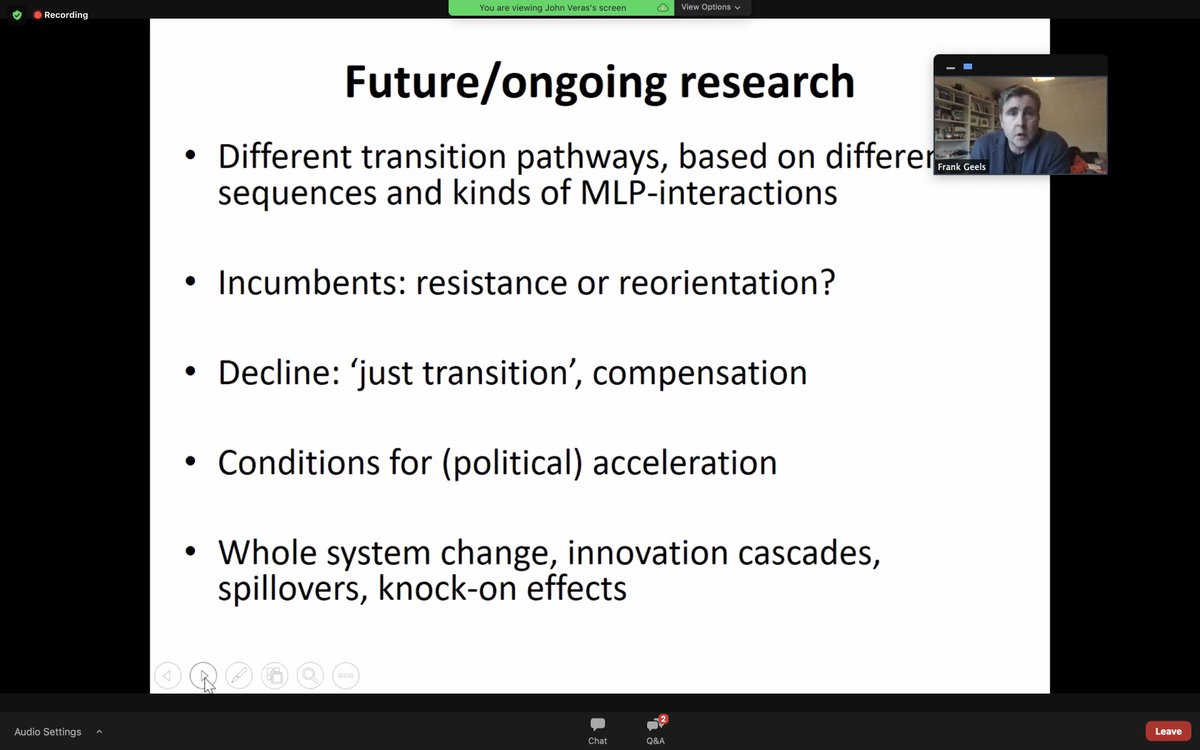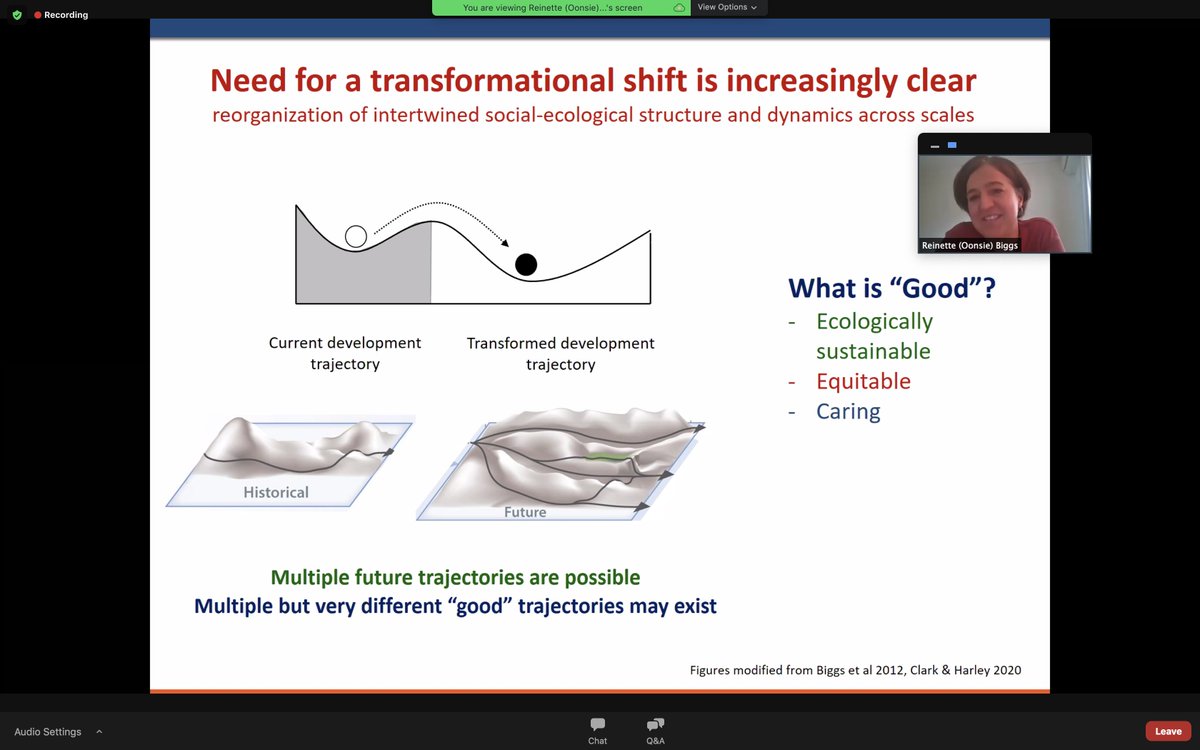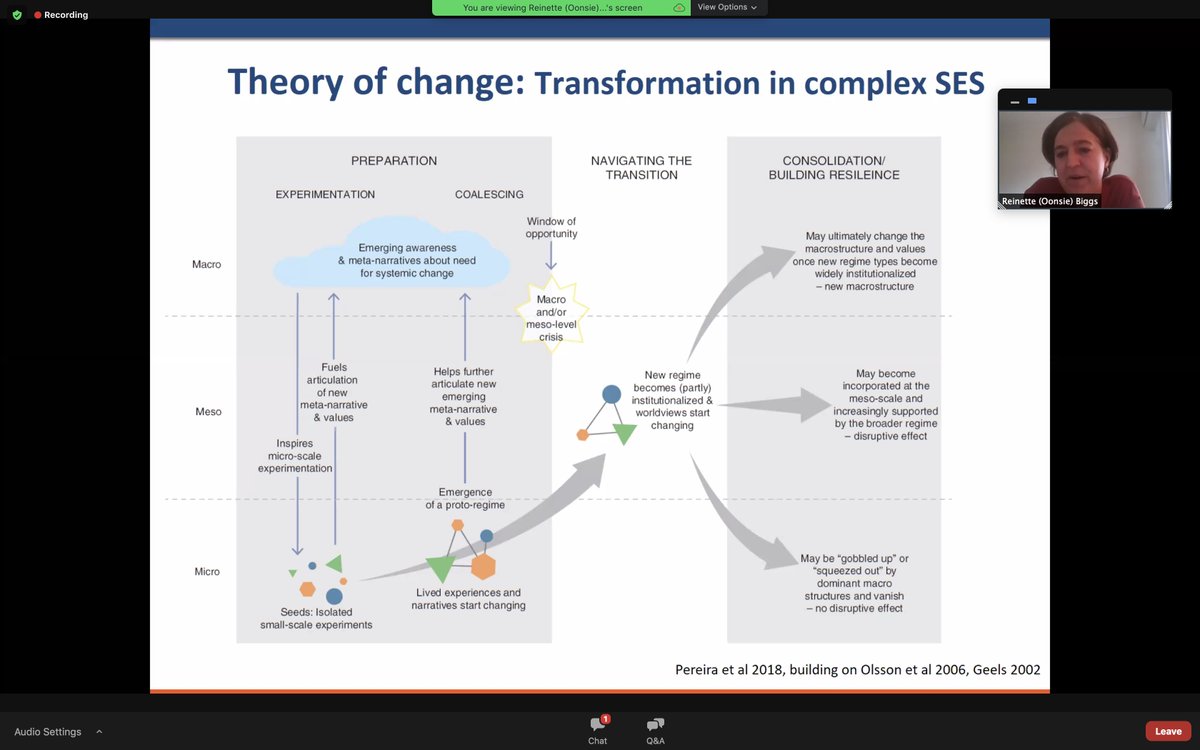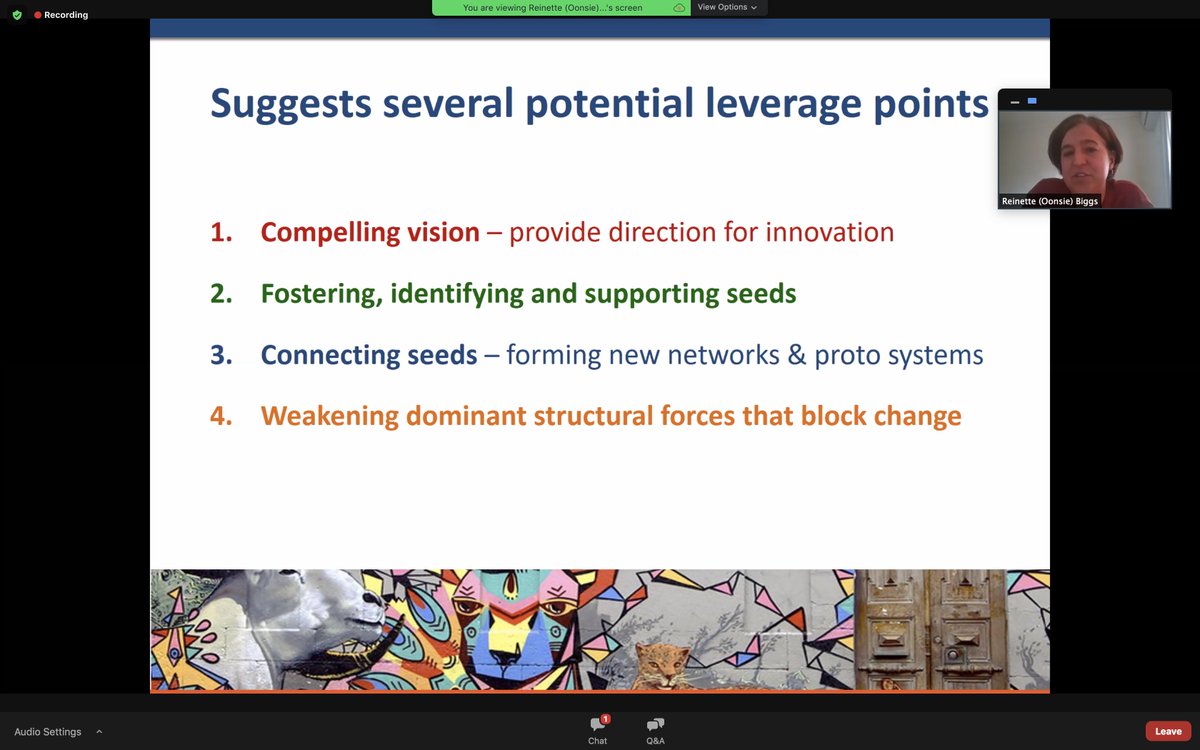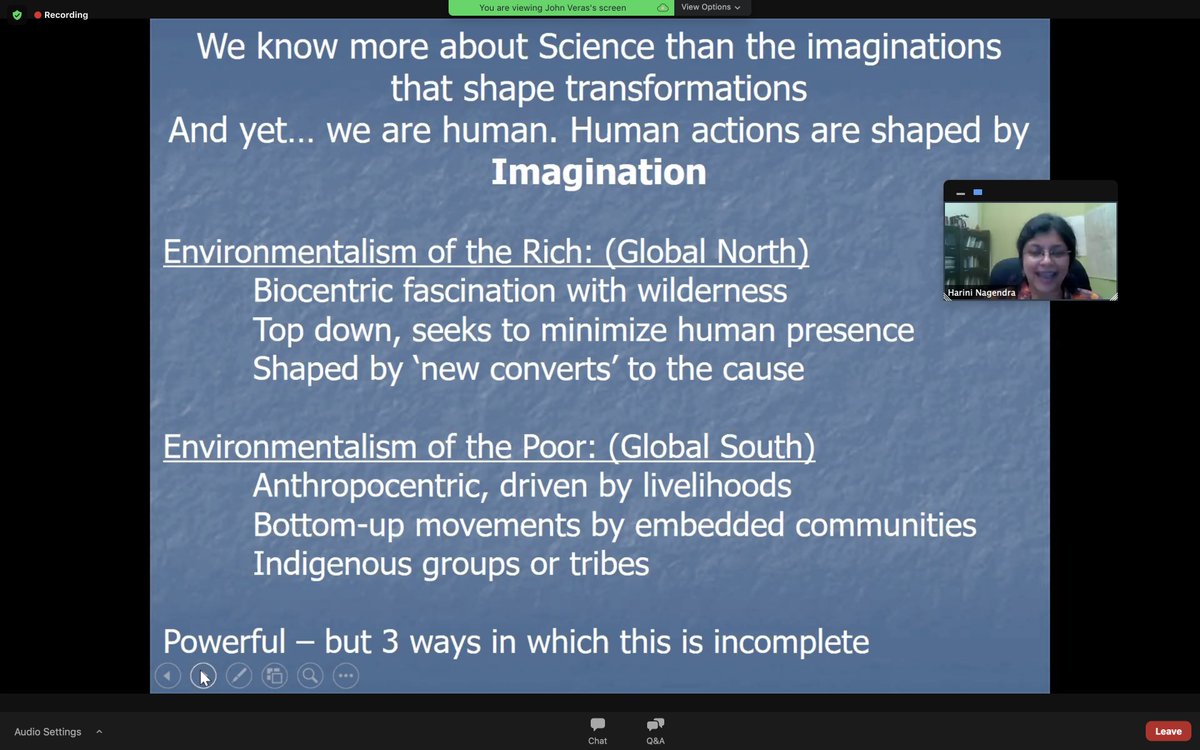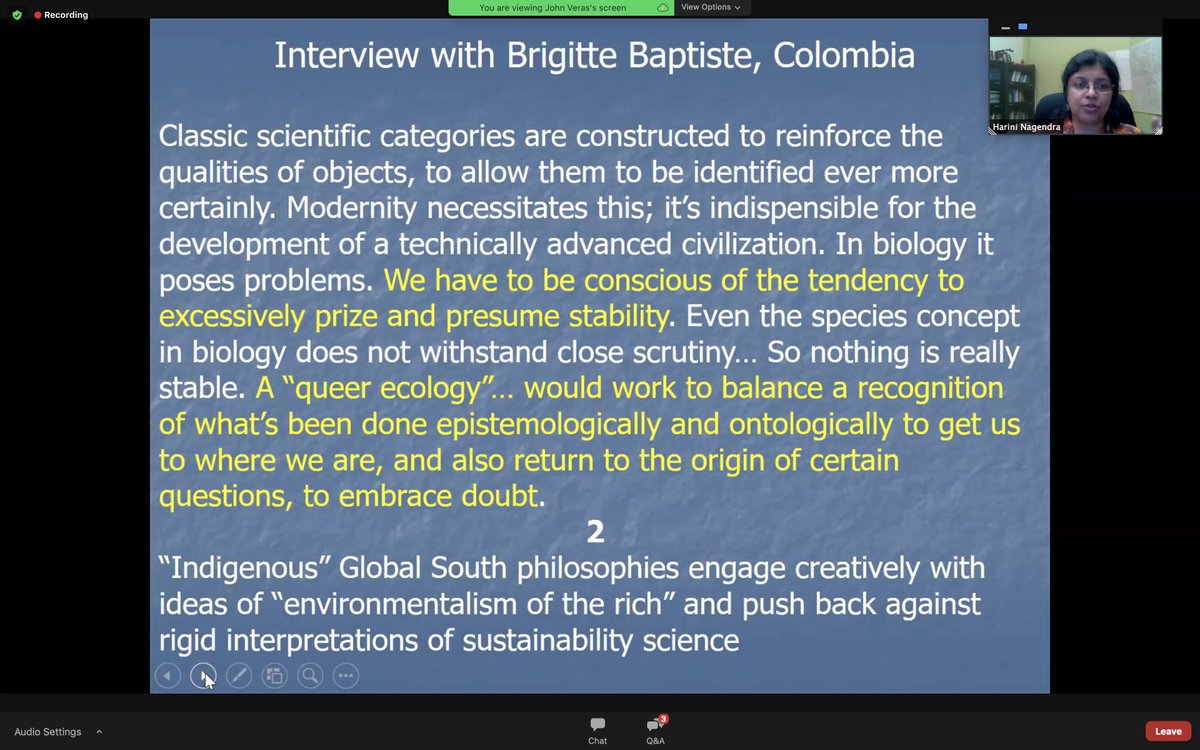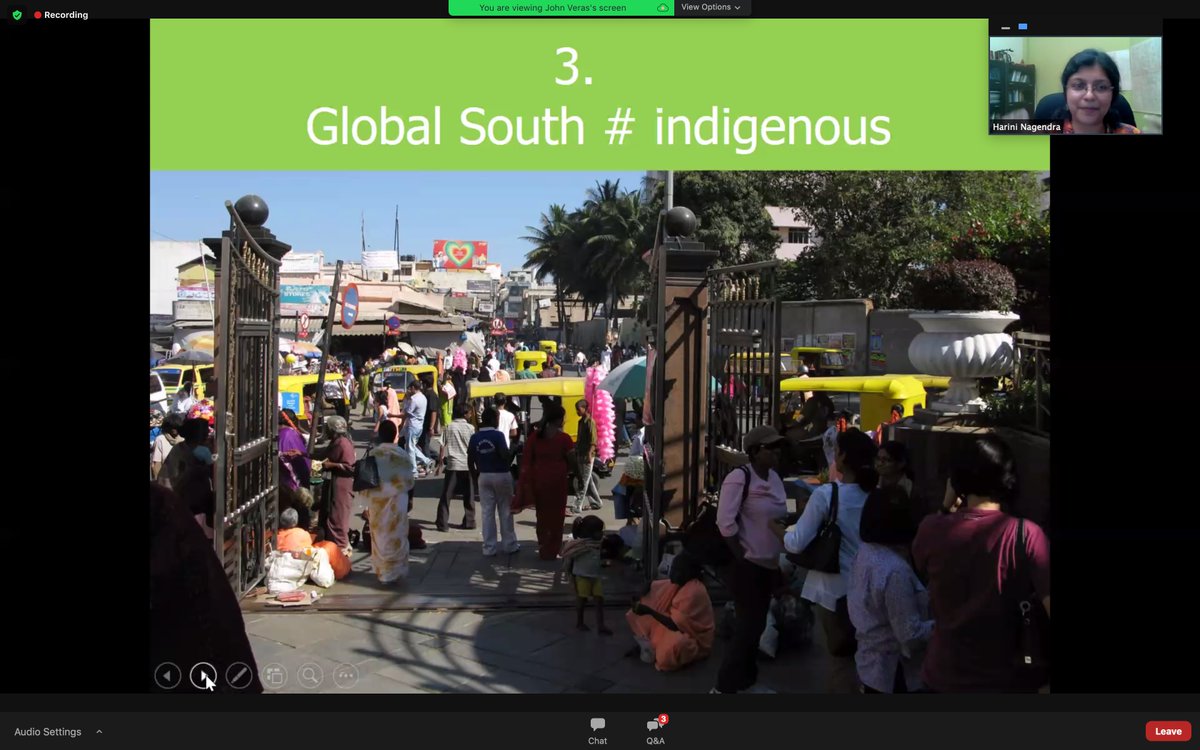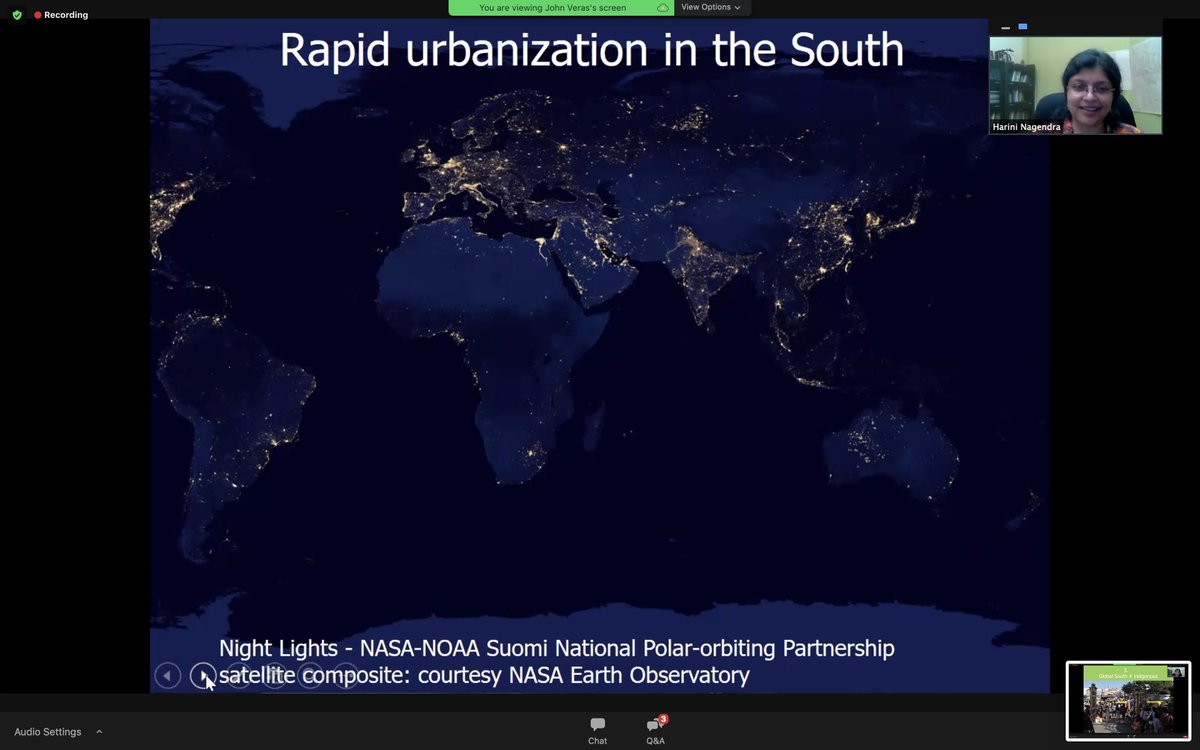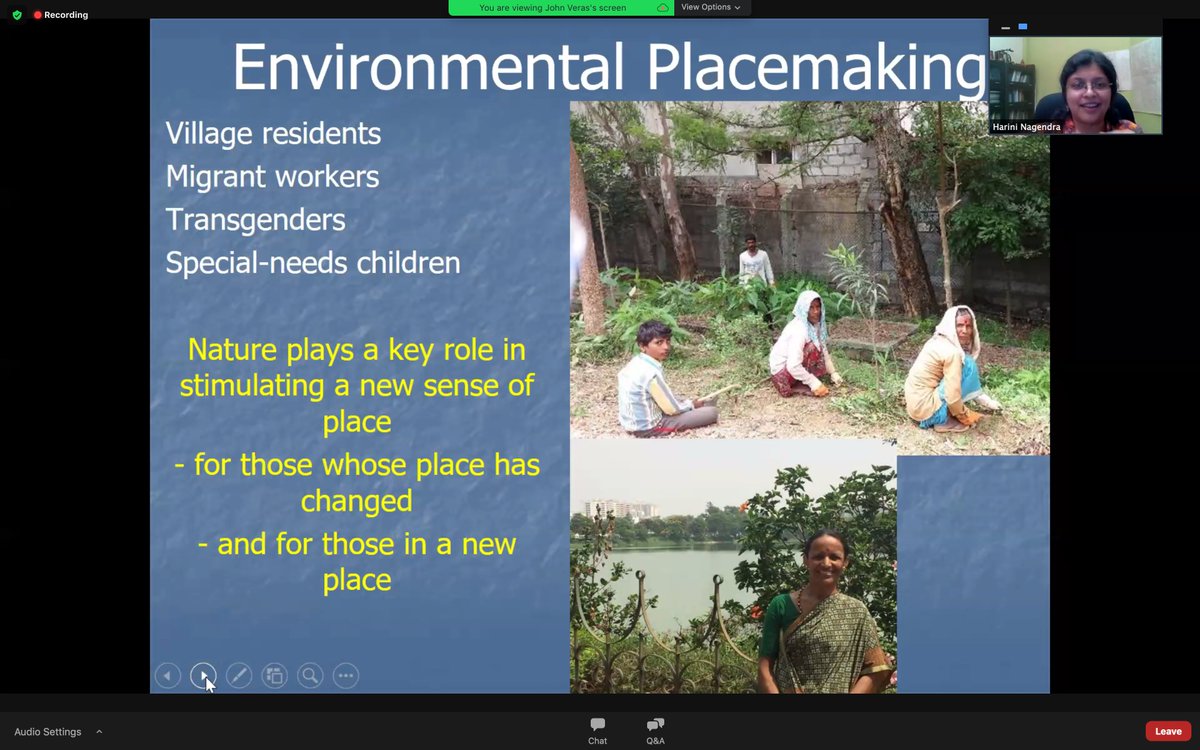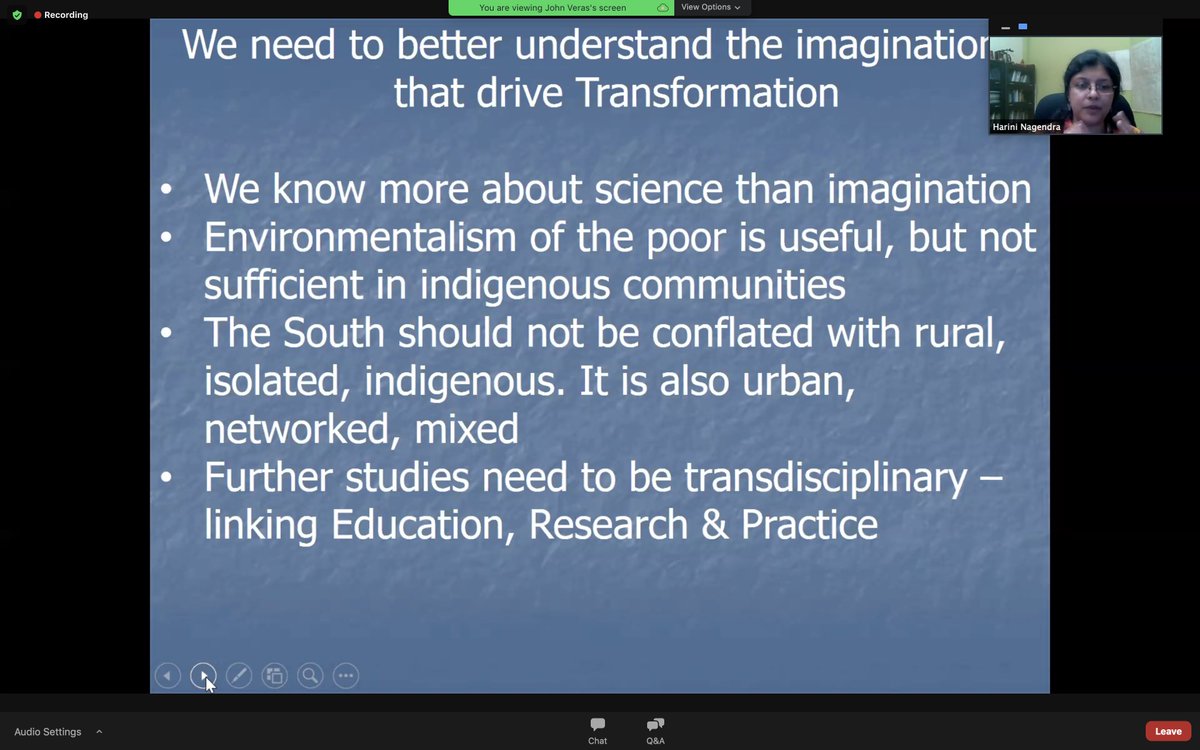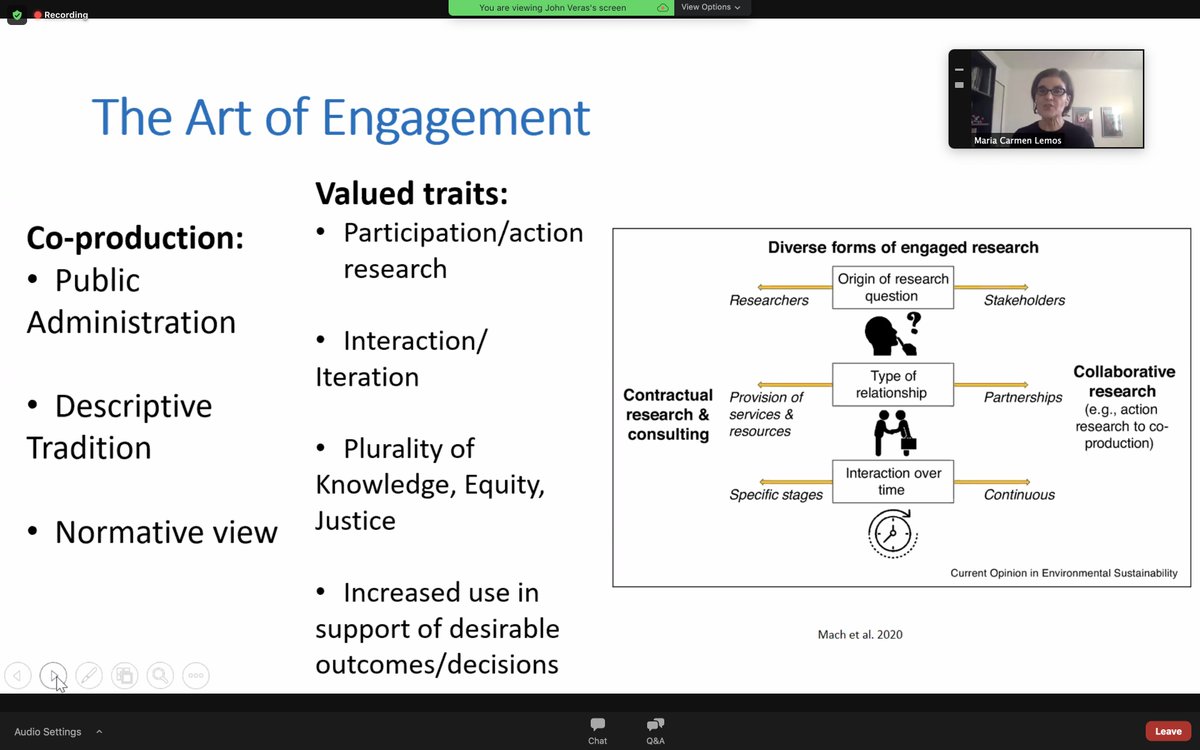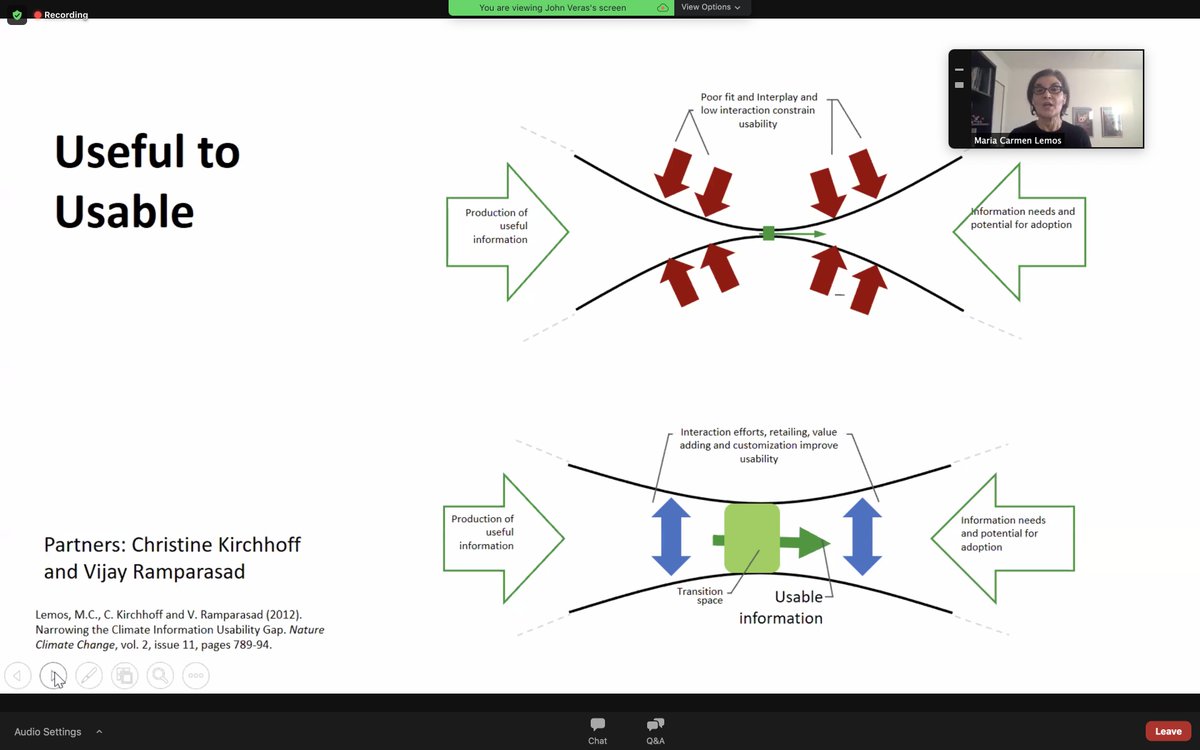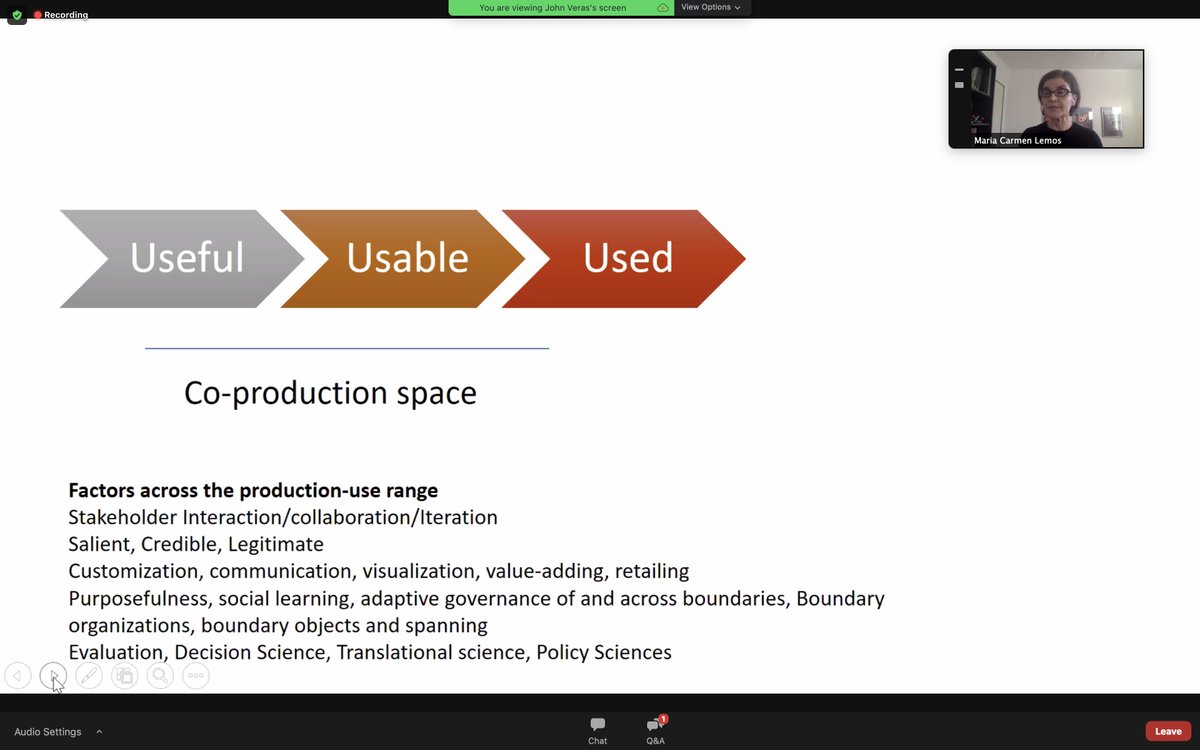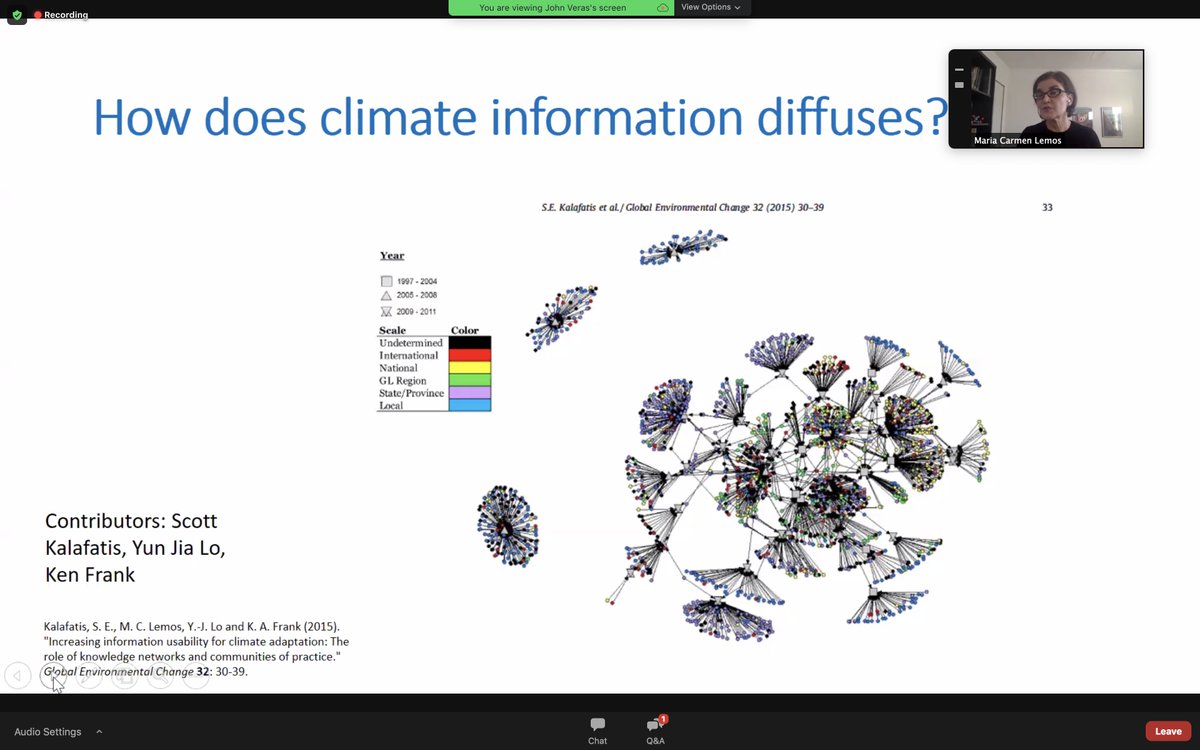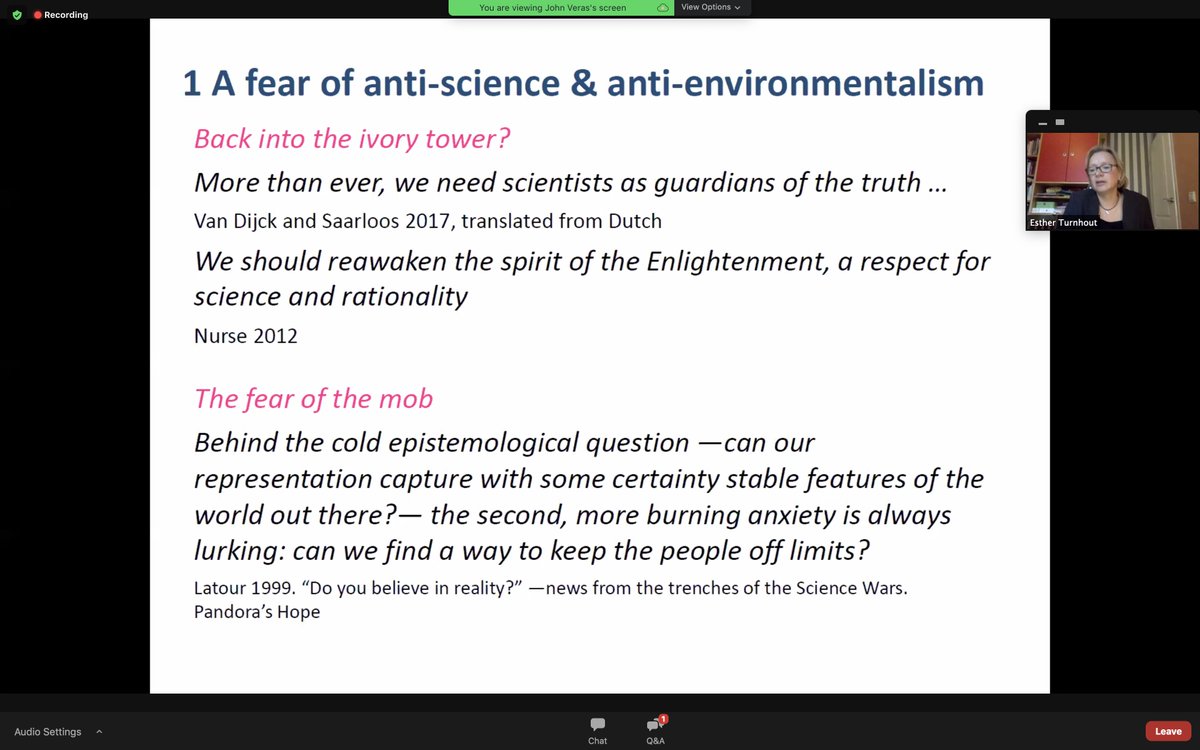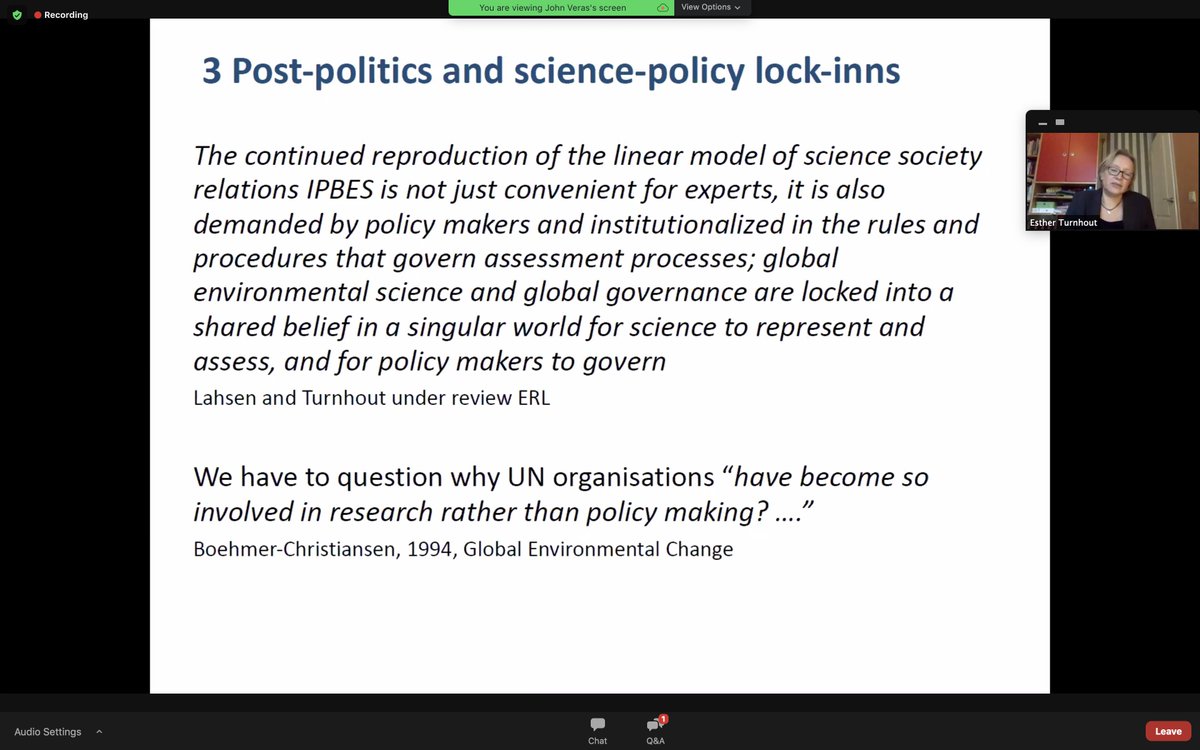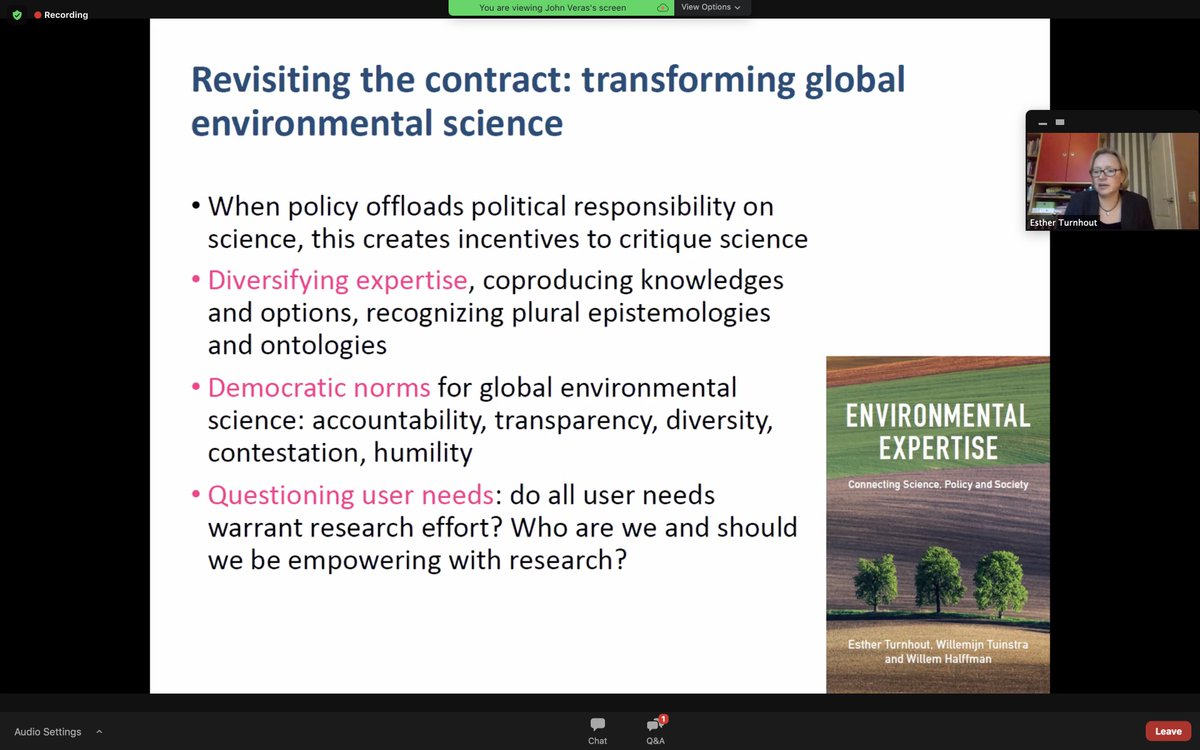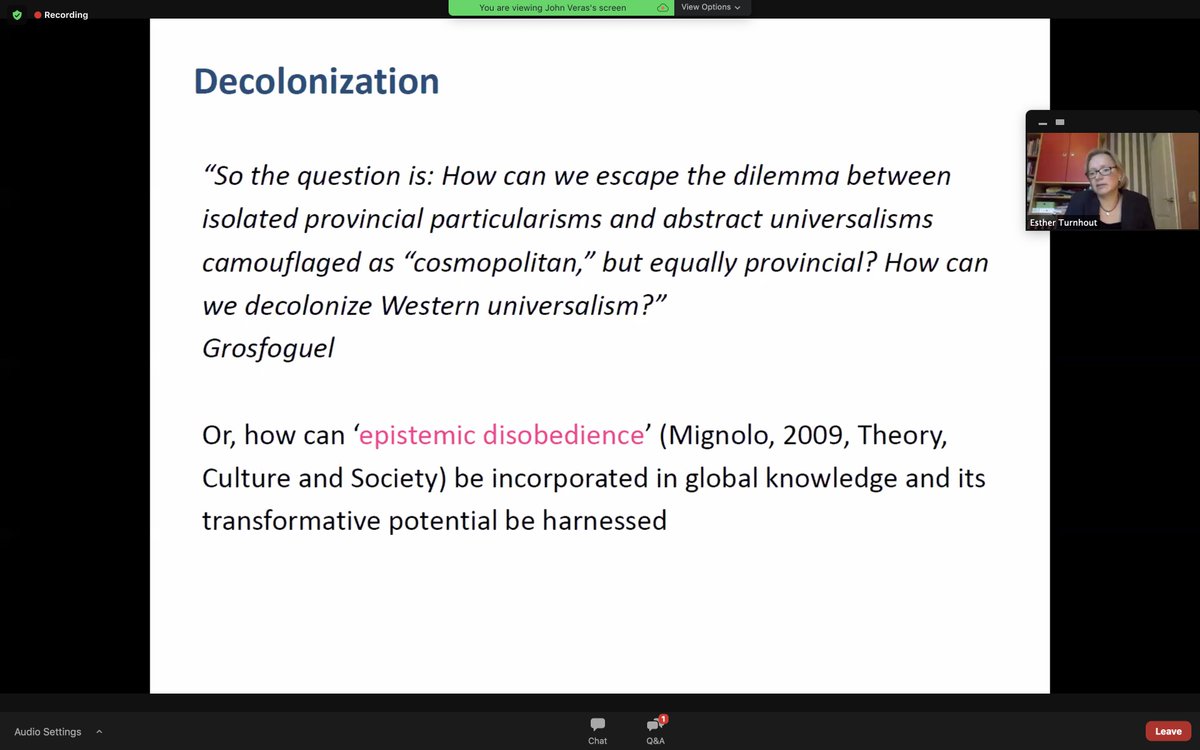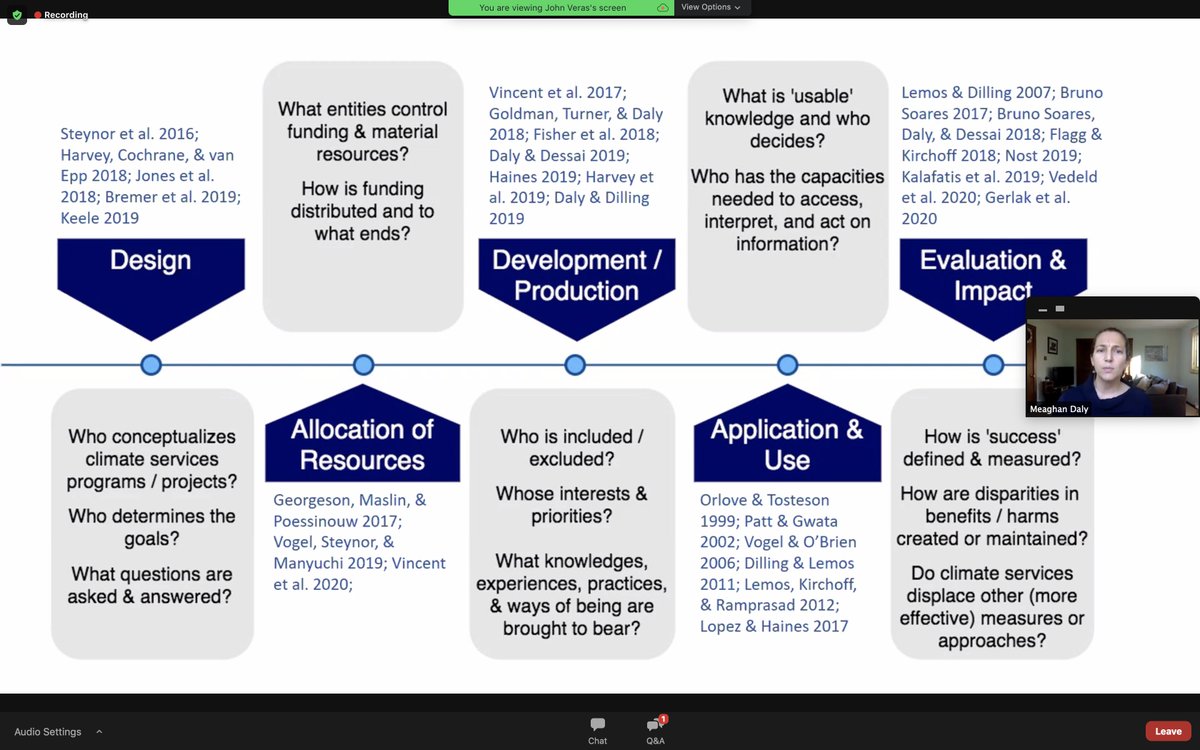Now virtually attending @theNASEM workshop on #Sustainability science- input to the 2021 #NobelPrize Summit “Our Planet, Our Future." Register to watch livestream below. Some highlights to follow over next 3 days #Thread https://twitter.com/theNASEM/status/1332352272014192645
"Autocracies don't publish much data," says @MarshallBBurke. Do existing methods reinforce existing problematic power structures & unsustainable patterns? Given data gaps, need more ways to measure at scale to be able to shine a light on and potentially address power imbalances.
"Equity is about justice and achieving equality of outcomes, so that everyone can see the football match" says @mleach_ids. Seven forms of equity interact to drive how groups experience the world.
A whirlwind tour of 4 flavors of justice and how they relate to environmental justice, including #ClimateJustice, from @mleach_ids @theNASEM.
Ten drivers of unsustainability, by @mleach_ids. Includes status comparison driving unsustainable consumption; elites and power.
Procedural equity is what will deliver a #JustTransition, argues @mleach_ids, as well as attention to power relations and structural factors that allow/impede #transformation.
How to achieve equitable sustainability, from @mleach_ids. For more, see her paper with @BelindaReyers et al., "Equity and sustainability in the Anthropocene,"
https://doi.org/10.1017/sus.2018.12
https://doi.org/10.1017/sus.2018.12
"White Supremacy as Roadblock to Sustainability" by Laura Pulido, @uoregon, begins with a definition of white supremacy.
Analysis by Laura Pulido and team found that Trump frequently talked/Tweeted about racism, and very rarely about the environment. But his policy actions were (quietly) focused on dismantling environmental policies, less so on changing race-related policies.
Scenes from #oilpalm plantations in Indonesia and Cameroon. Extremely poor people see palm oil as an economic opportunity, but it comes with harm to landscapes and livelihoods. @JabouryGhazoul uses role-playing games to develop more equitable land management strategies.
Games make people emotionally feel the challenges of others, and they're fun. Here a financial manager couldn't access enough trucks needed to deliver his palm oil crop in the game- such empathy can translate into new strategies and policies, says @JabouryGhazoul
Here's your reading list on #power and #sustainability for more just societies, from @FlorAvelino. Leads to new social relations, where change actually happens.
Successful social movements are locally embedded, globally connected. Transformative change must challenge underlying power relations and system (e.g., centralized fossil fuel energy based on unbridled capitalism, exploitative overconsumption), says @FlorAvelino.
What is power? is a hotly contested scholarly question. Decentralizing physical resources doesn't automatically lead to more equity, says @FlorAvelino. Though renewable energy can decentralize (physical) power, still need (social) power lens. See: https://www.tandfonline.com/doi/full/10.1080/00139157.2019.1564212
"Elites have disproportional environmental impacts. On a finite planet, we need to both level down (reduce overconsumption) as well as level up (meet needs)... Do we have time for equity, or will challenging power relations be too slow to fix environmental crises?" asks @ymalhi
Major social changes from history grow from social movements- years of organizing lead to social tipping point where status quo is seen as morally unjust, as in end of slavery and votes for women, says @mleach_ids. (This implies sustainability needs more moralizing, not less!)
Thread, Day 2, @theNASEM workshop:
Connections matter for #sustainability. We have most data for trade, price signals, institutions, but understanding capital flows critical, says @vgalaz @sthlmresilience. Follow the money to get to root causes, transparency, accountability.
Connections matter for #sustainability. We have most data for trade, price signals, institutions, but understanding capital flows critical, says @vgalaz @sthlmresilience. Follow the money to get to root causes, transparency, accountability.
Capital flows are not always smooth, they can be a shock. Decline in international investment shows disproportionate impact of #COVID19 on the most vulnerable.
@vgalaz @sthlmresilience at
@theNASEM #Sustainability workshop
@vgalaz @sthlmresilience at
@theNASEM #Sustainability workshop
Small group spread pro-meat misinformation online after #EatLancet report on healthy and sustainable diets, shows @vgalaz @sthlmresilience.
Paper in @TheLancet: https://www.thelancet.com/journals/lancet/article/PIIS0140-6736(19)32526-7/fulltext
Spread of information growing enormously (bubbles represent info online)
Paper in @TheLancet: https://www.thelancet.com/journals/lancet/article/PIIS0140-6736(19)32526-7/fulltext
Spread of information growing enormously (bubbles represent info online)
We should recognize inherent tradeoffs between robustness and fragility, says Marty Anderies @ASU. We can't avoid them, so how do we live with them justly?
What is resilience? Increasingly seen as a set of capacities that help people, ecosystems, societies develop with and through change, says @BelindaReyers @FutureAfricaUP @sthlmresilience.
Before we talk about transformation, must understand stability says Frank Geels. Why don't things change? Economic, social, and political/power reasons entrench and lock in the status quo, fight with the many innovations/seeds of change that could scale but struggle to establish.
Frank Geels on transition stages:
1. Emergence: innovations emerge in niches
2. Stabilization: Include more actors, form rules, bigger projects
3. Diffusion: transformation/waves of creative destruction goes mainstream (vs. resistance)
4. Reconfig- decline old, system change
1. Emergence: innovations emerge in niches
2. Stabilization: Include more actors, form rules, bigger projects
3. Diffusion: transformation/waves of creative destruction goes mainstream (vs. resistance)
4. Reconfig- decline old, system change
Frank Geels closes with analysis of stages of #climate transition for sectors- power leads but is still only early in stage 3, and ag/land use listed in Stage 1. Future questions- "should we help the fossil fuel industries die, or take them with us in transformation?"
Sustainability getting increasingly philosophical- rotates around what are we aiming for, "What is good?" @OonsieBiggs offers the definition that good is ecologically sustainable, socially equitable, as well as more caring and more human than our current system.
Theory of change of @SeedsGA, from @laurap18 et al. paper- prepare for larger transformation using seeds present today, shows @OonsieBiggs. Use 4 leverage points, both working towards compelling vision + nurturing/connecting seeds (carrots) + weakening existing power (sticks).
Resources for a Good Anthropocene: TED talks, whiteboard sketches, stories, papers: https://goodanthropocenes.net/ from @OonsieBiggs
. @resilienceSci identifies two faces of #resilience: what we want to keep around (persistence) and what we want to get rid of (building capacities to transform from old to new).
Self-organization key to #resilience, found @resilienceSci in Arctic case study. Colonialism legacy much stronger than technological factors.
What enabling conditions would allow growth of desirable seeds, promote decline of undesirable lock-in, asks @resilienceSci. Need both for transformation!
. @HariniNagendra contrasts "environmentalism of the rich" (people are bad for nature, top down) vs. "the poor" (center people, bottom-up, rural, spiritual). But in fact poor can be connected to global networks & movements; have deep personal relationships with (centering) nature.
Maybe we need to embrace more doubt, says @HariniNagendra, push back against rigid interpretation of #sustainability. And remember the Global South is not the same as #indigenous; it's urbanizing rapidly.
How do people make sense of place, to feel that the city is your own? Both for those who stayed, but city swallowed up their village; and for newcomers? Nature makes people feel at home, finds @HariniNagendra.
Research alone is not enough- we need imagination to answer what is wellbeing, what is a good society, says @HariniNagendra. Need to go beyond visions for big roads, cars in Global South; need more nuanced views of the poor and the South.
Both ideas/culture and materiality matter for transformation, argues Frank Geels. (Linking to very long-standing debate in social sciences on views from Weber vs. Marx).
Welcome to Day 3 of @theNASEM #Sustainability workshop & Knowledge to Action #womanpanel chaired by @DianaLiv. :)
Maria Carmen Lemos: coproduction (scientists collaborating with non-scientists) all the rage, but how can scientists go from producing "useful" to "usable" knowledge?
Maria Carmen Lemos: coproduction (scientists collaborating with non-scientists) all the rage, but how can scientists go from producing "useful" to "usable" knowledge?
Goal: from usable research to work that is actually *used* in practice. Maria Carmen Lemos found from network analysis of National Climate Assessment that "usability" of basic research was greatly increased at the borders in in communities of practice. https://www.sciencedirect.com/science/article/abs/pii/S0959378015000266
2 problems with science-policy contract (the assumption that science can and should inform decisionmaking) 1. it hasn't been effective and 2. it hasn't been legitimate, says @EstherTurnhout, despite aims at coproduction, incorporating traditional knowledge.
3 issues that lock in the science-policy contract, and a suggestion for transforming it by diversifying, democratizing, questioning power (not just responding to global policy elites), from @EstherTurnhout
The frontier to #decolonize #sustainability science is urgent and relevant, argues @EstherTurnhout - including making space for more than one universal truth.
Knowledge happens in a context, filled with power-laden struggles define and maintain the boundary between science and politics, says @daly_meaghan. Here's an overview of power dynamics in #ClimateServices - need to question who's authorized, participates, benefits?
We are not on track because we focus on decarbonizing developed countries- need much more focus on developing countries to decarbonize while meeting their needs, not exacerbating inequalities. Climate change is a problem of distribution, compensation, leadership. @chuks_okereke
It's hard to measure the effects of climate policy, because of positive spillovers (benefits to other areas, which violate the assumption of economic models), as seen with innovations following standards that benefitted other areas @leahstokes.
Turnover rate: when appliance/vehicle/some polluting thing comes to end of its life, is it being replaced by a low-carbon alternative? If so, we're not reinvesting in dirty stranded asset; also bringing down costs thru learning by doing. @leahstokes reflecting on @rewiringamerica
The argument that climate requires everyone to do everything now implies monolithic solution, but anything political creates conflict. We have to find ways to allow conflict & contestation, we need multiple visions of a good city, to allow that to happen - @harrietbulkeley
"Who has power to decide? The powerful, the wealthy, the elite." @ruthdefries
YES- but so many people who say these words think they are talking about someone else, without acknowledging they/we/I also belong to this group (and have to be part of the necessary change!!!)
YES- but so many people who say these words think they are talking about someone else, without acknowledging they/we/I also belong to this group (and have to be part of the necessary change!!!)

 Read on Twitter
Read on Twitter